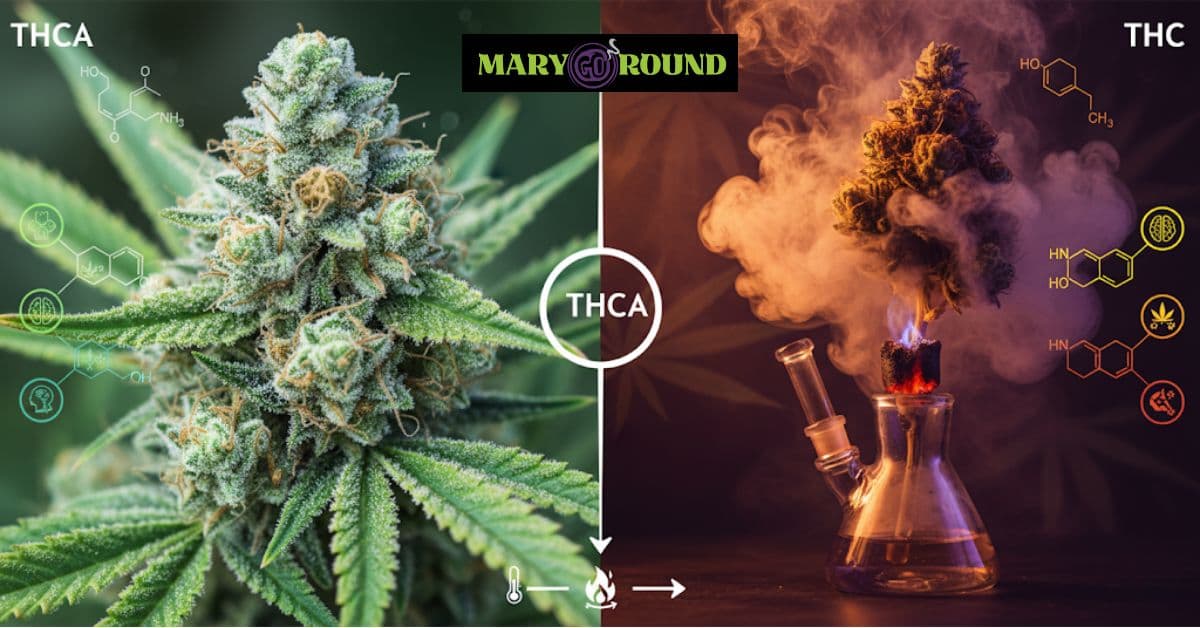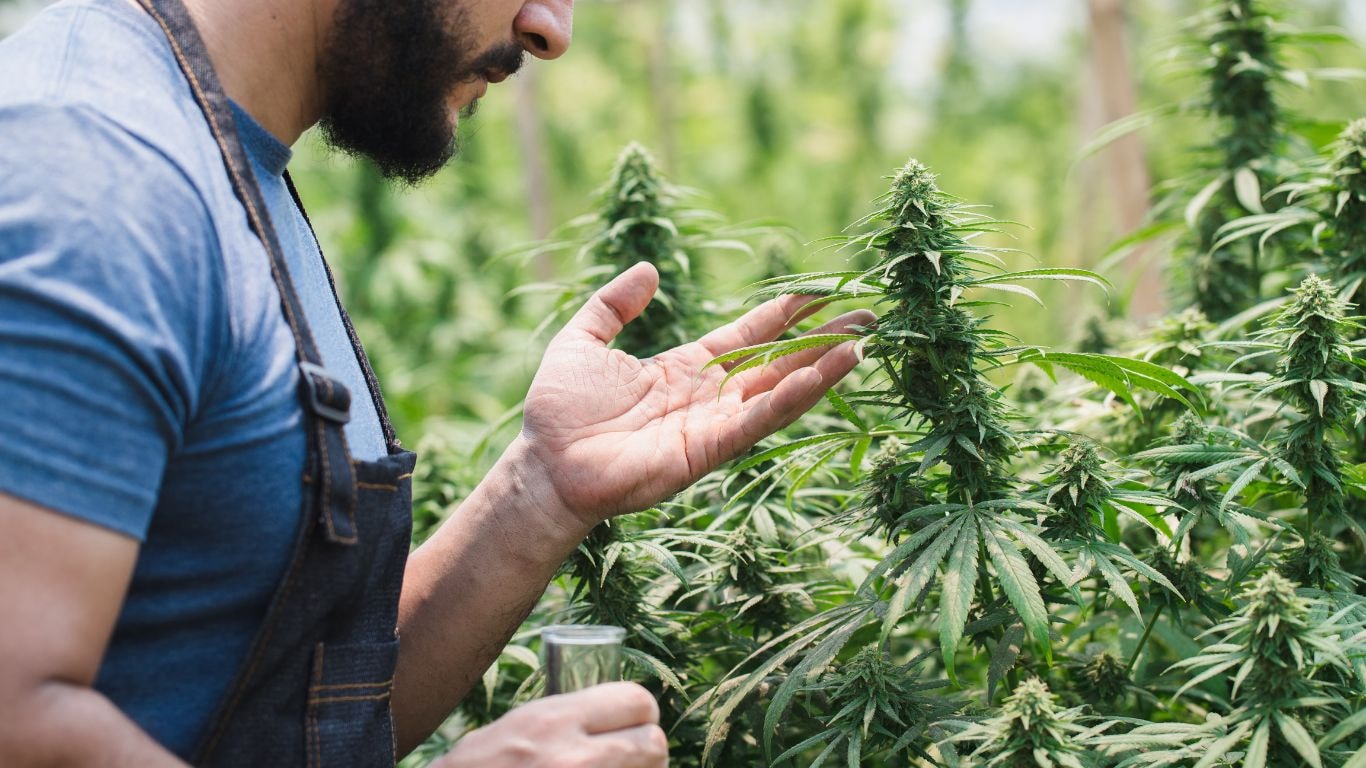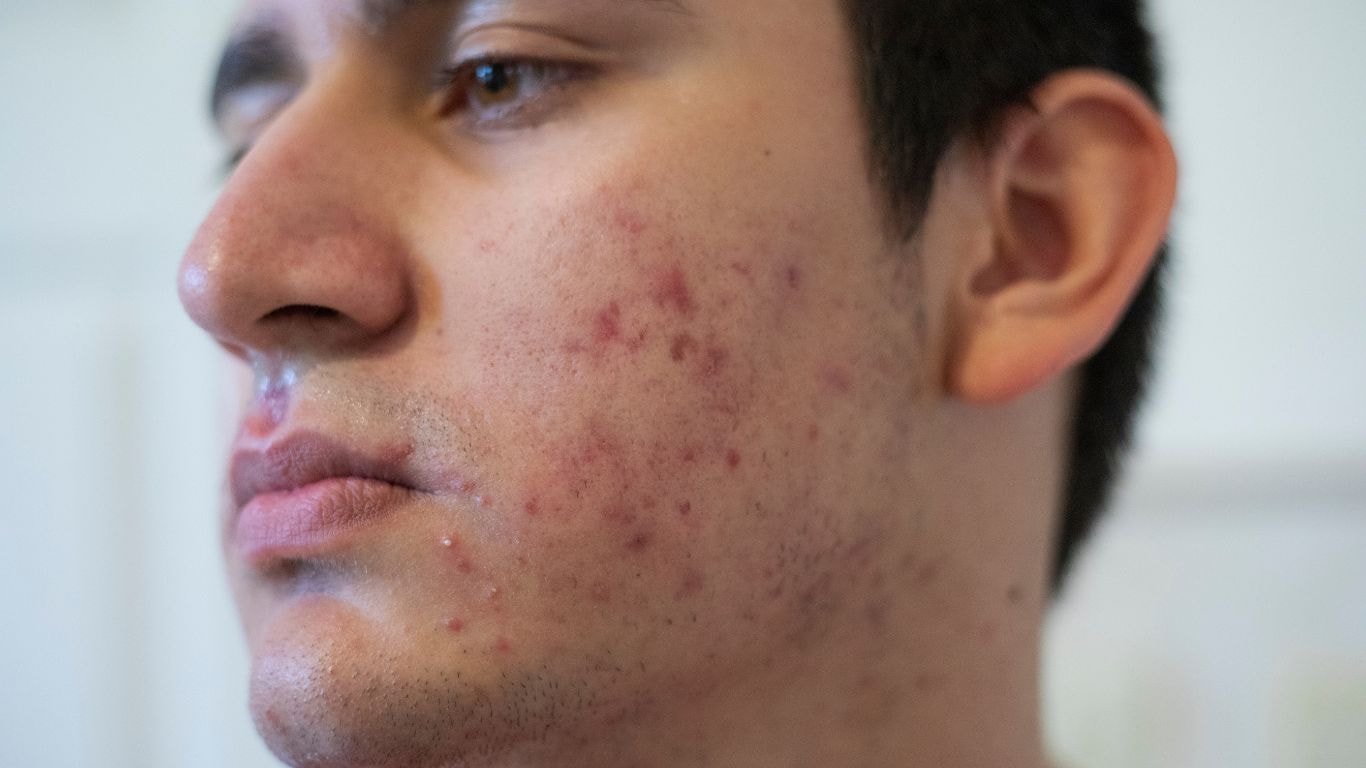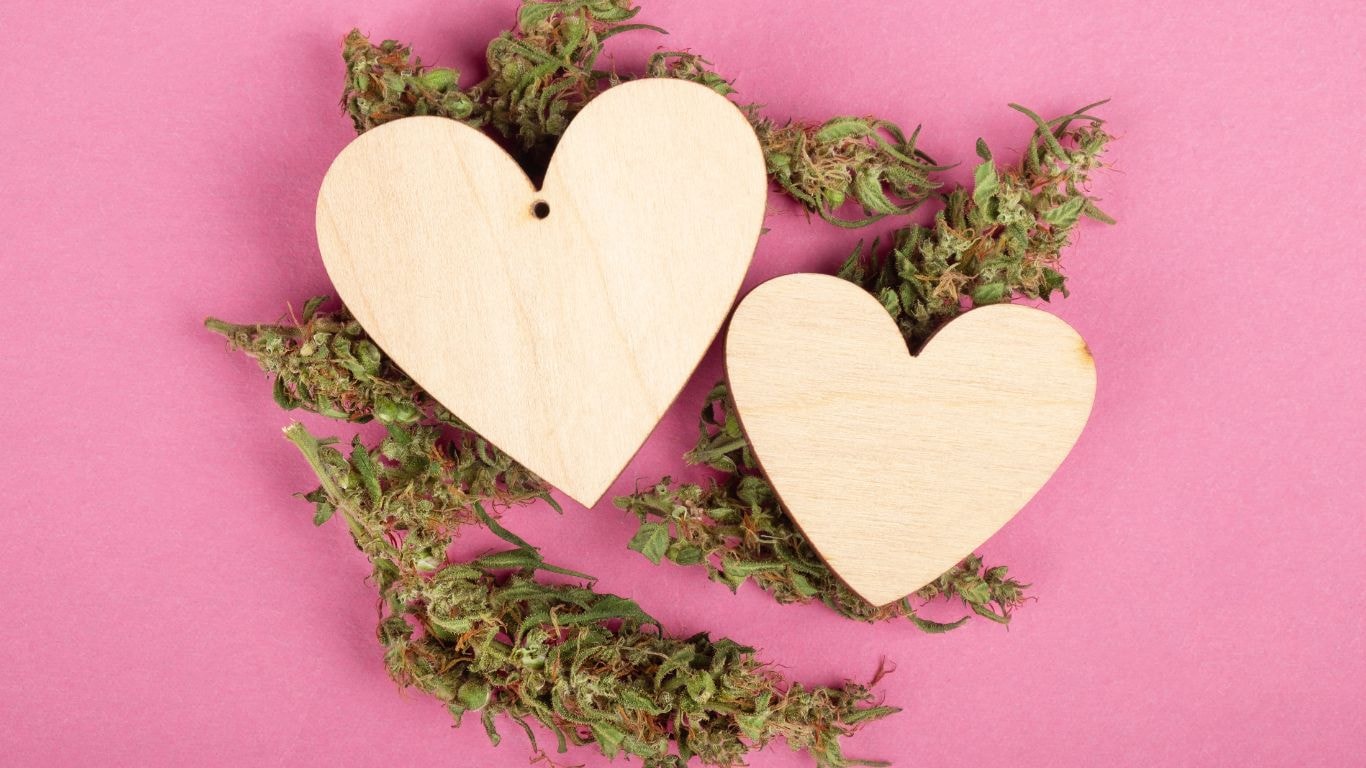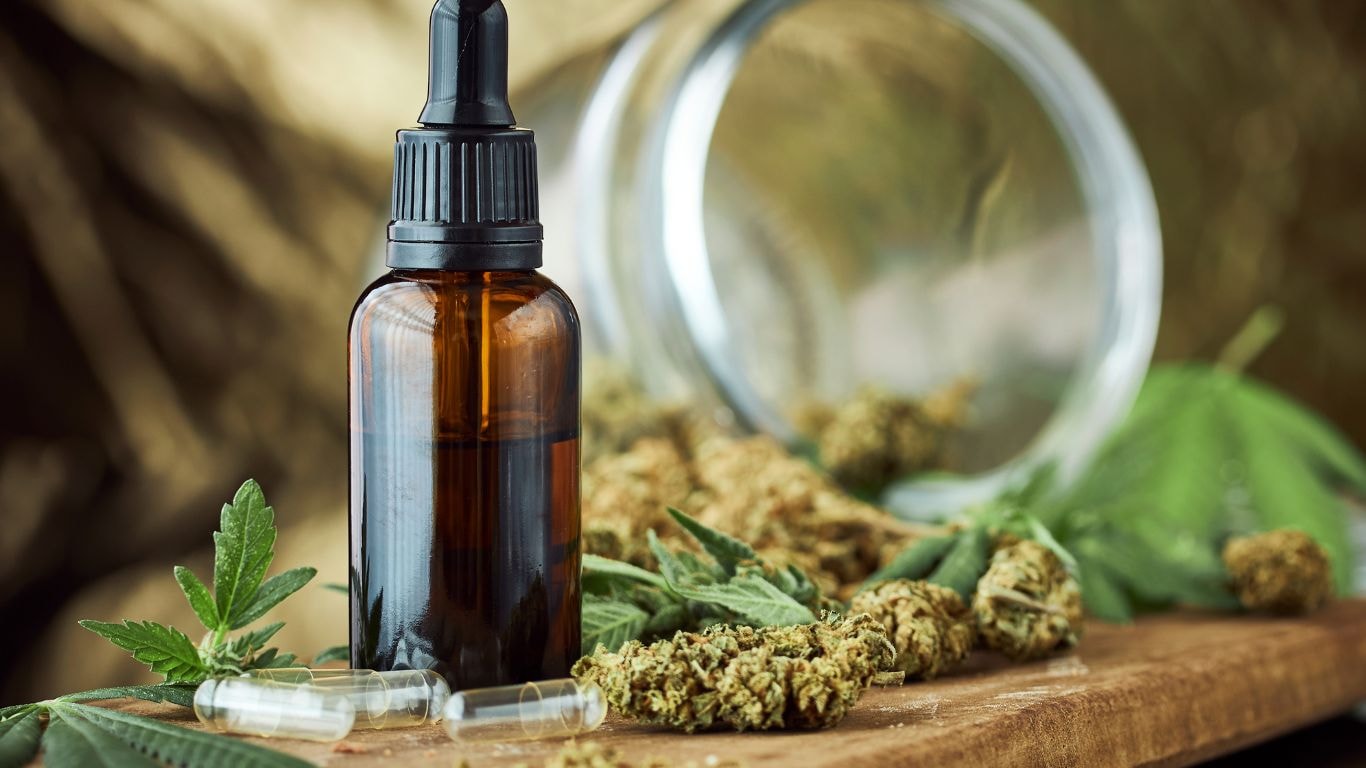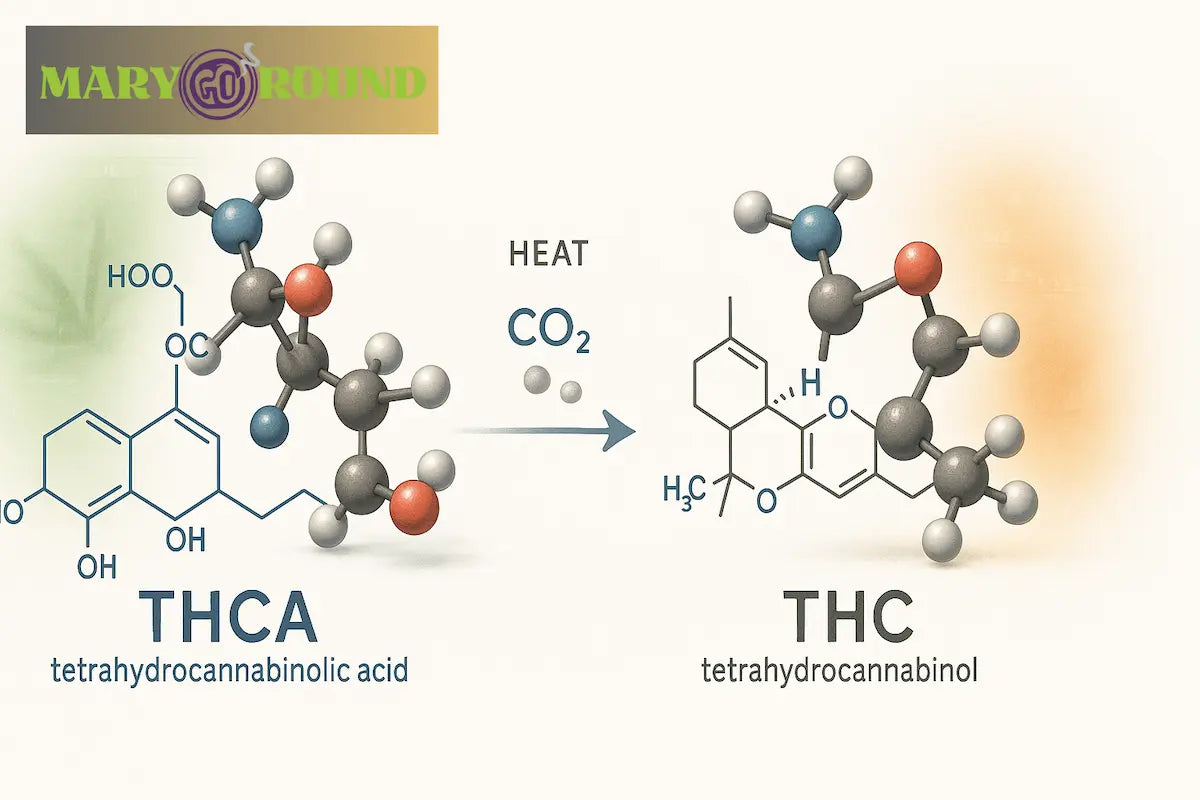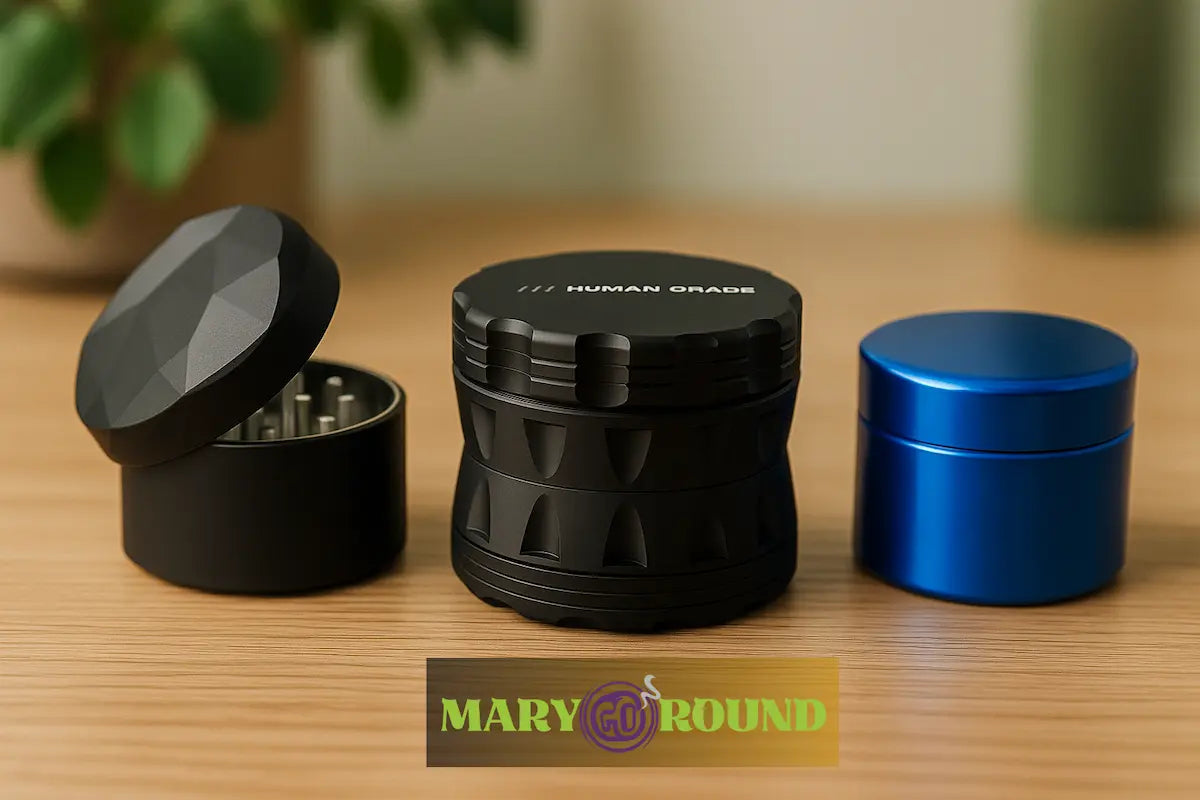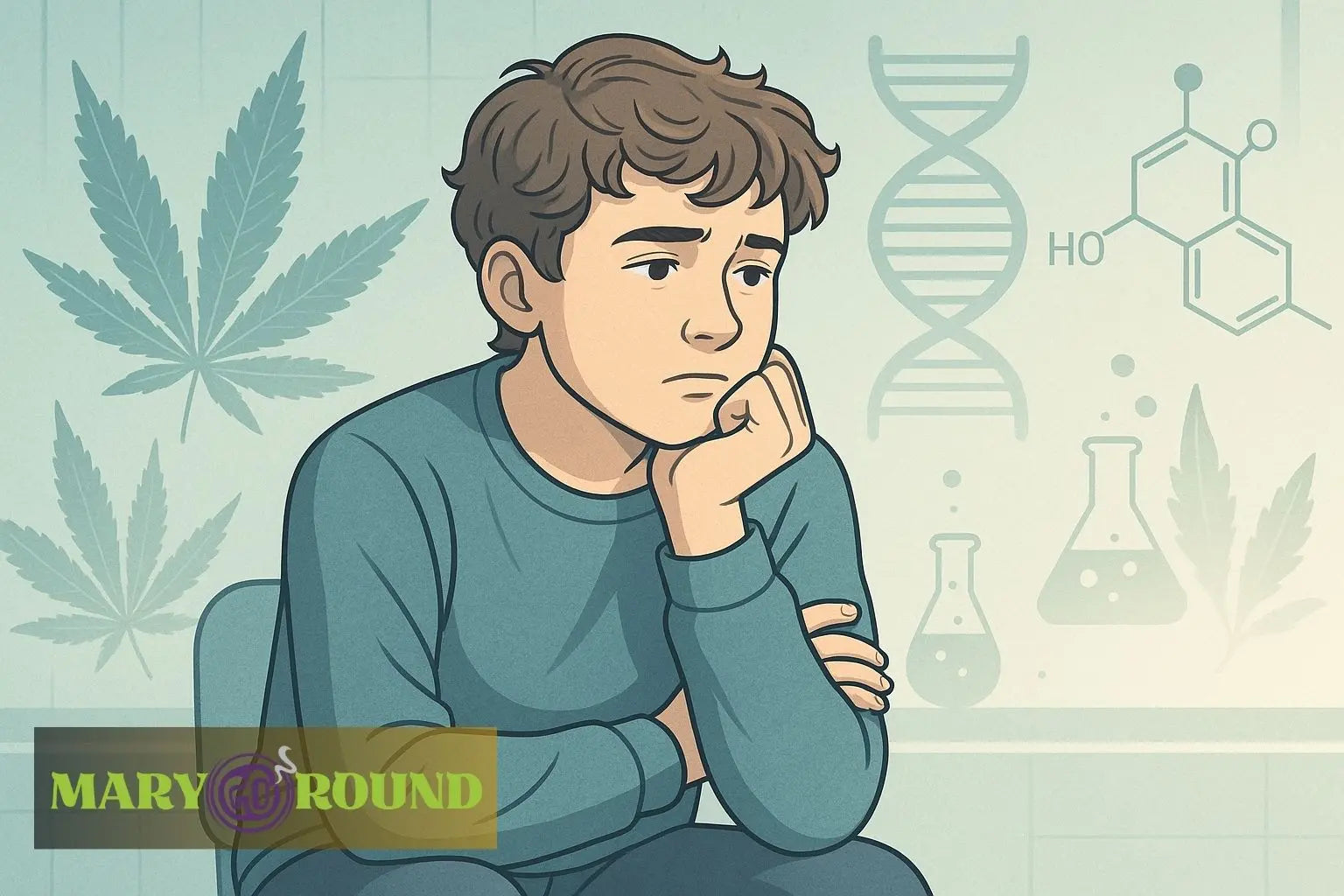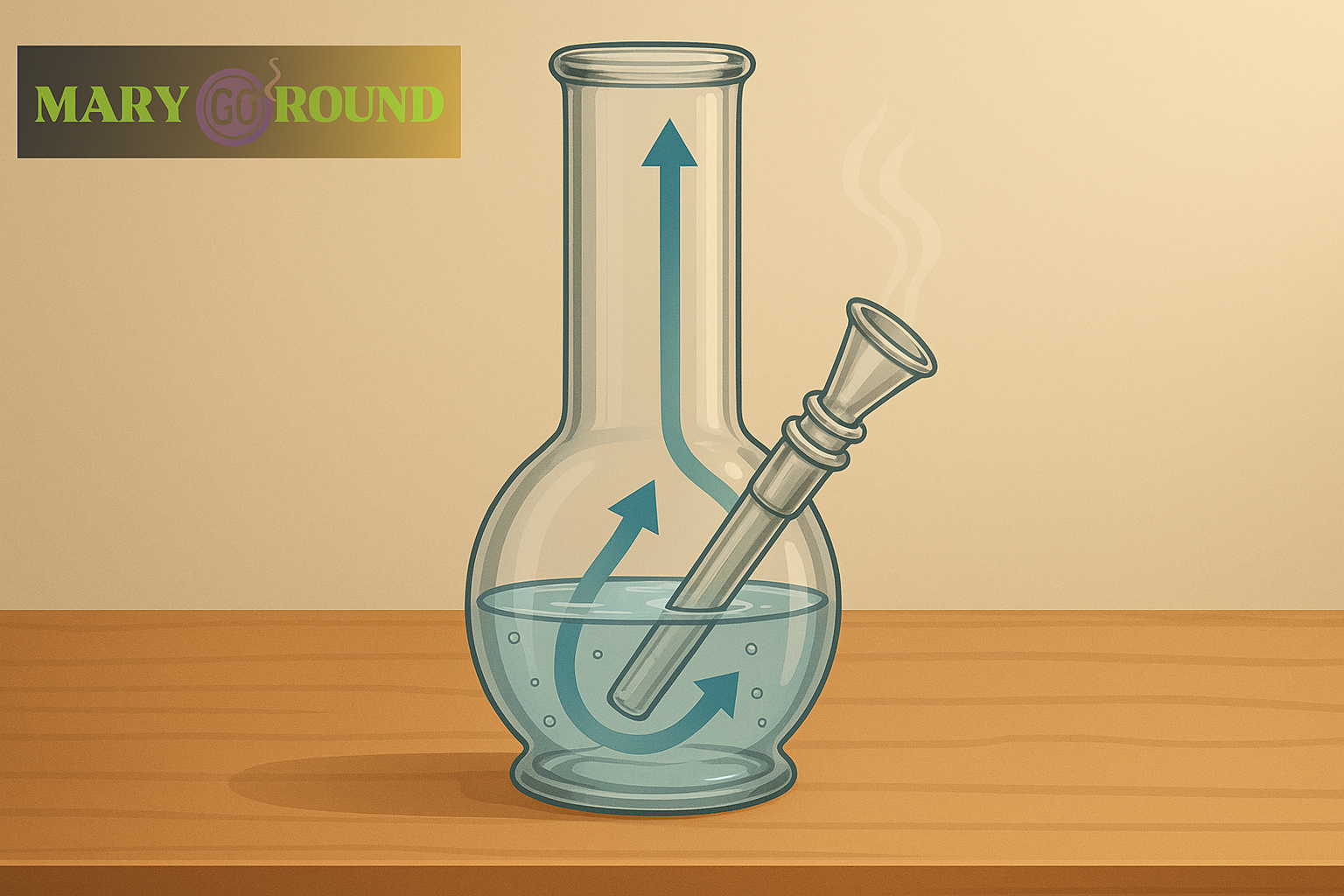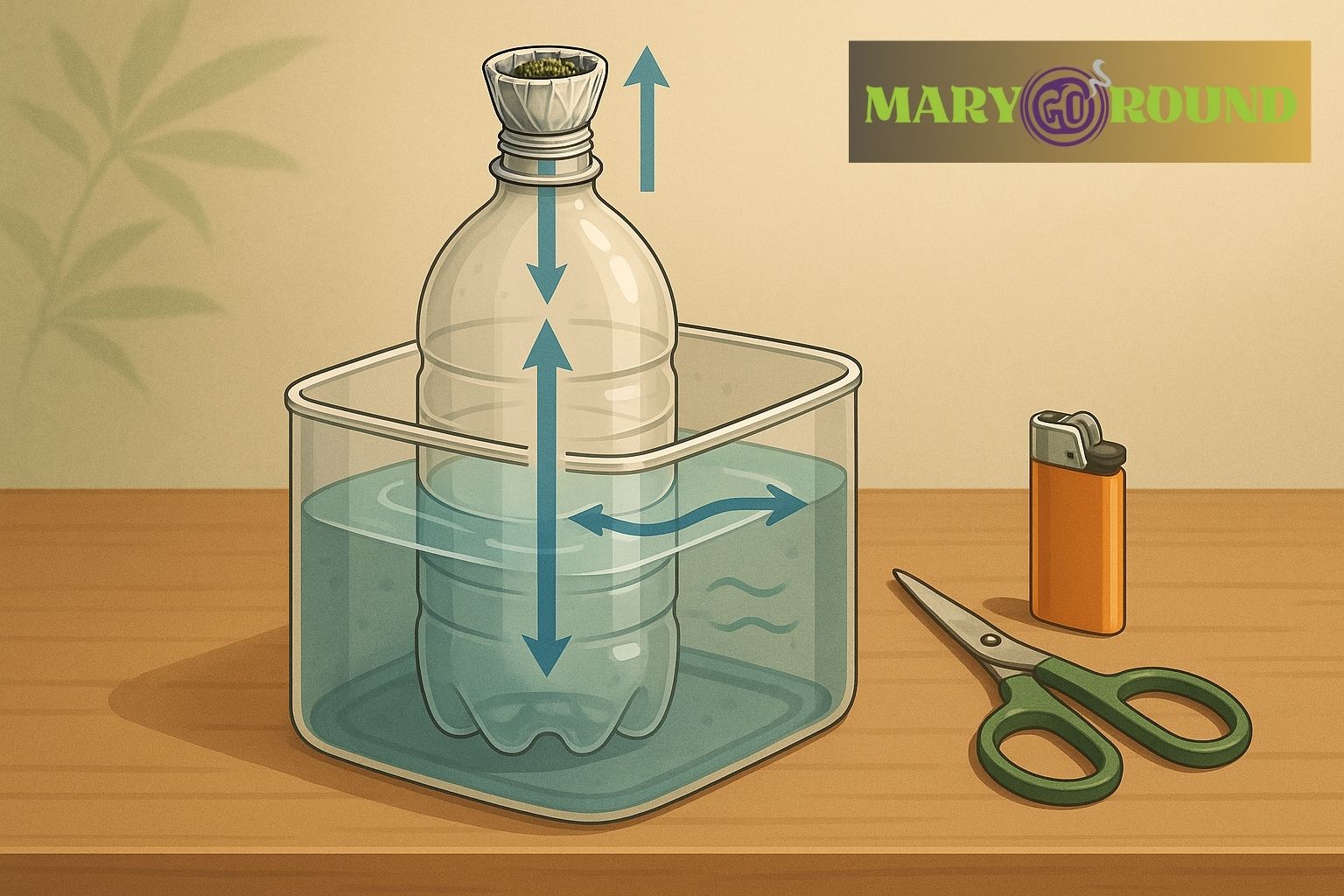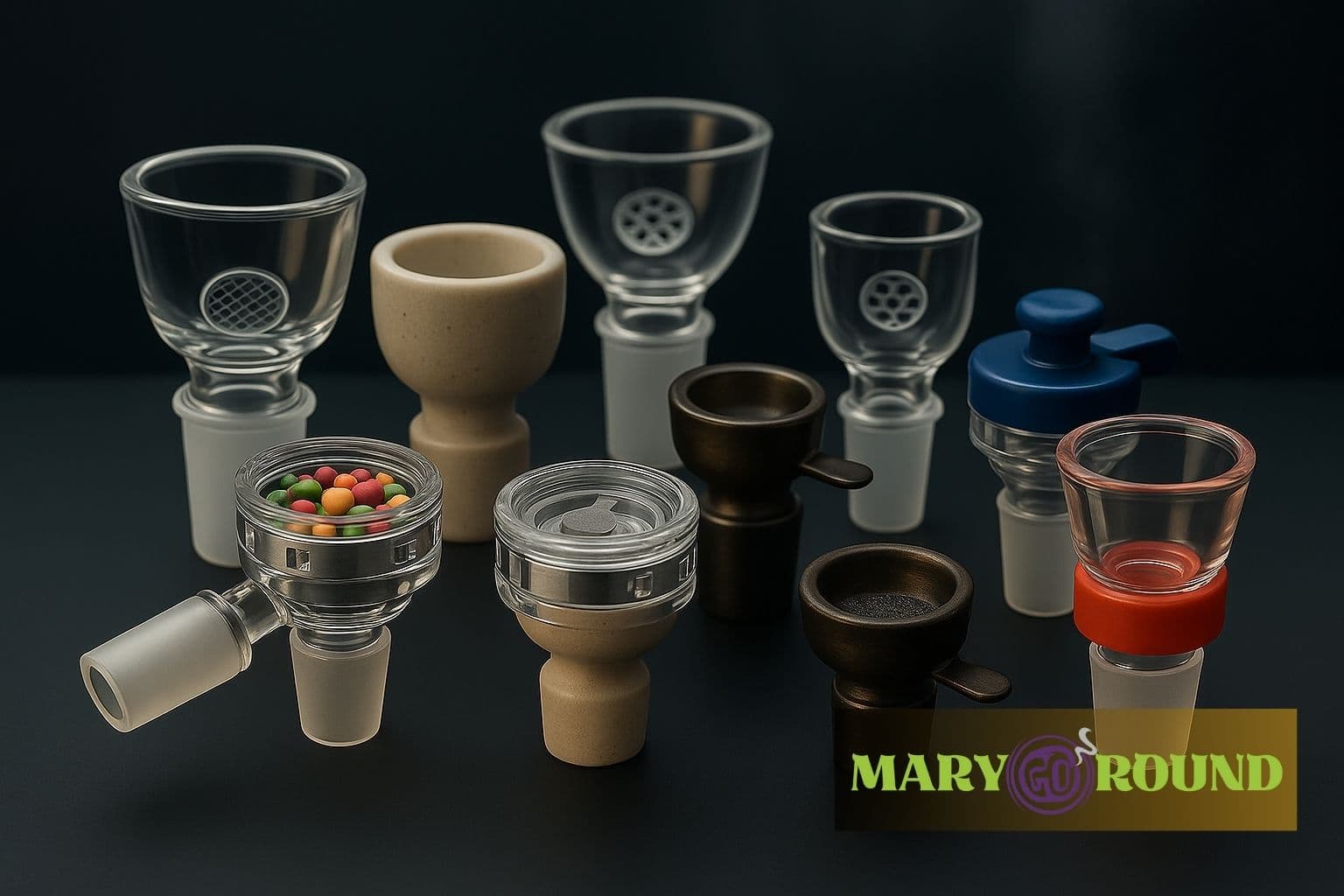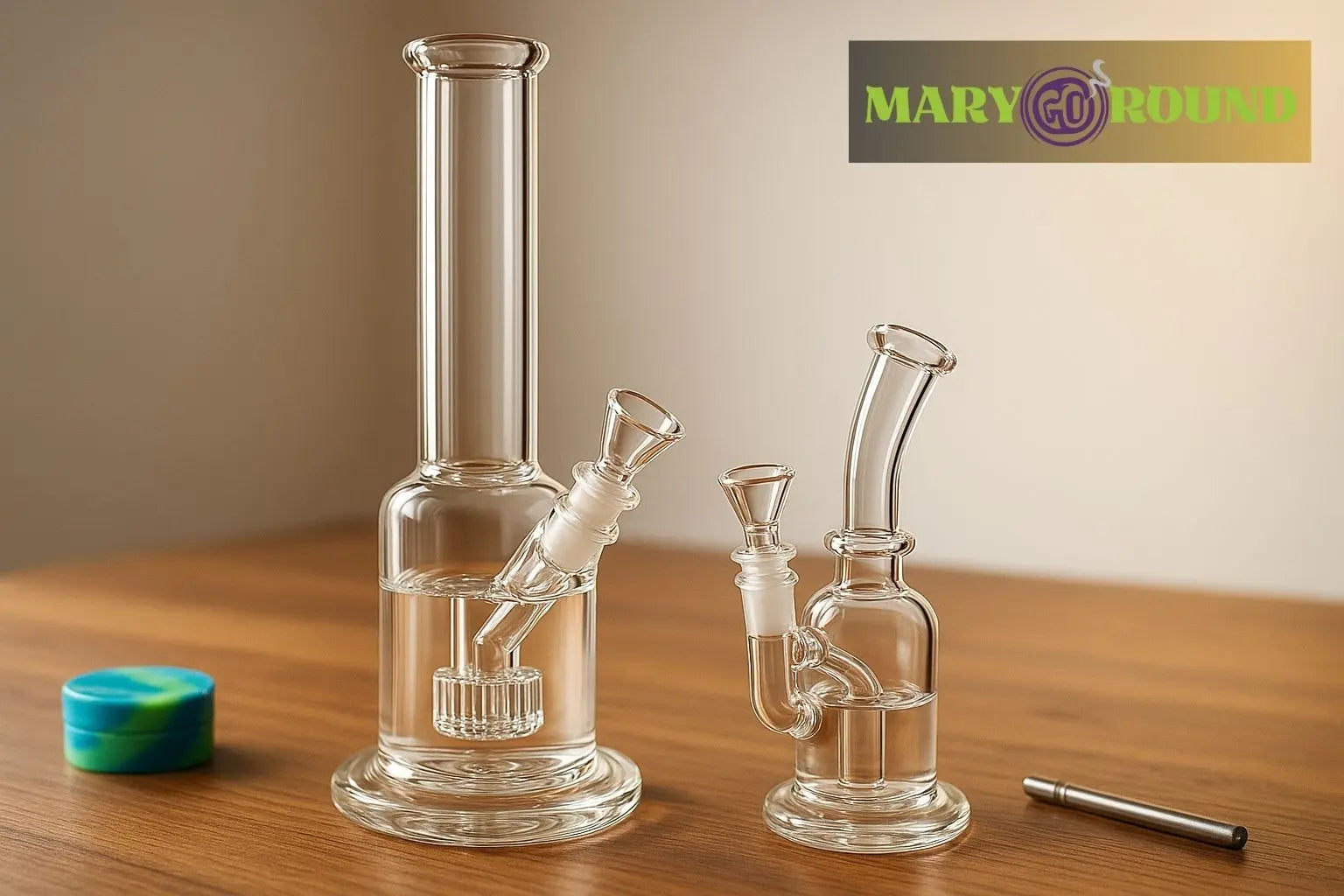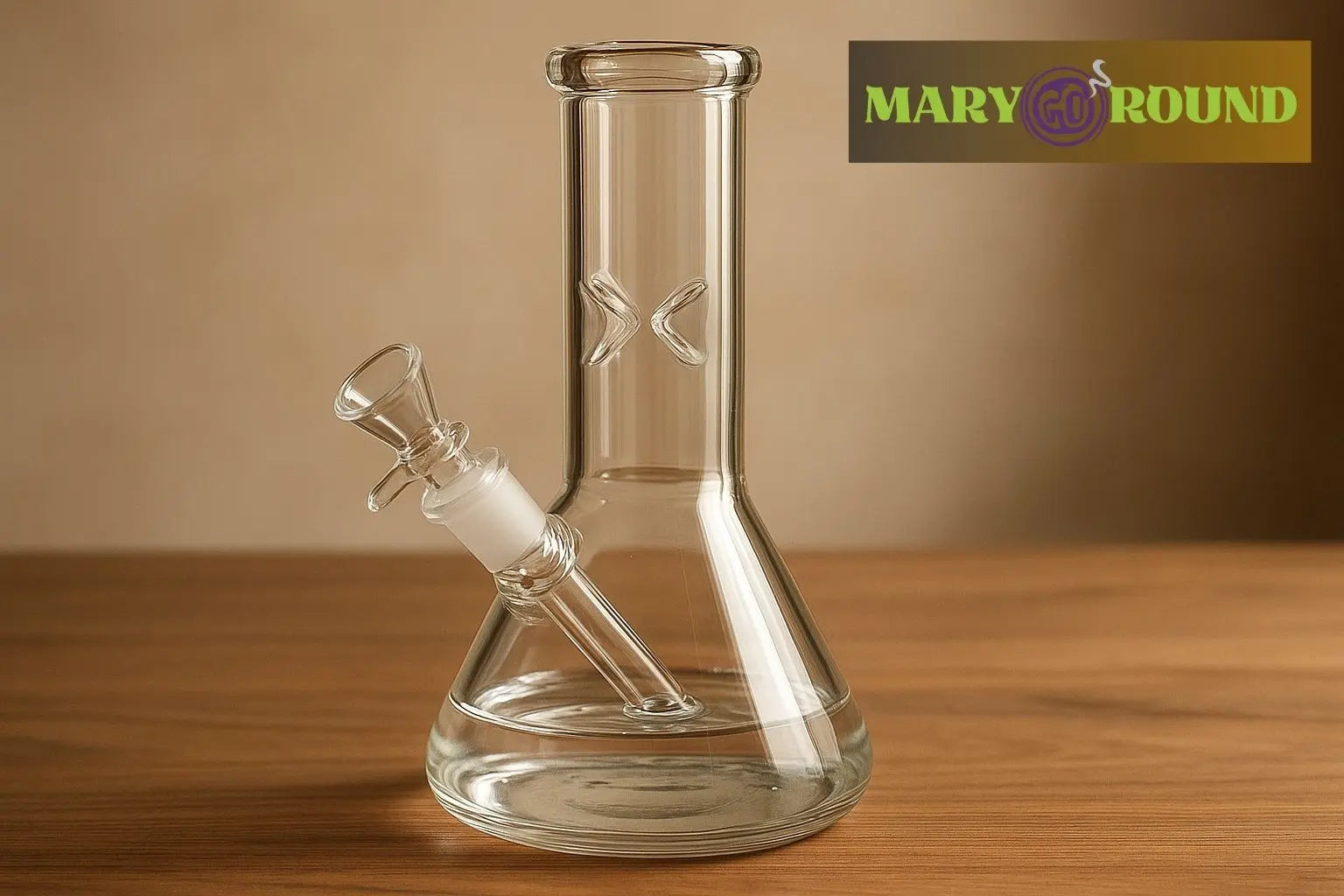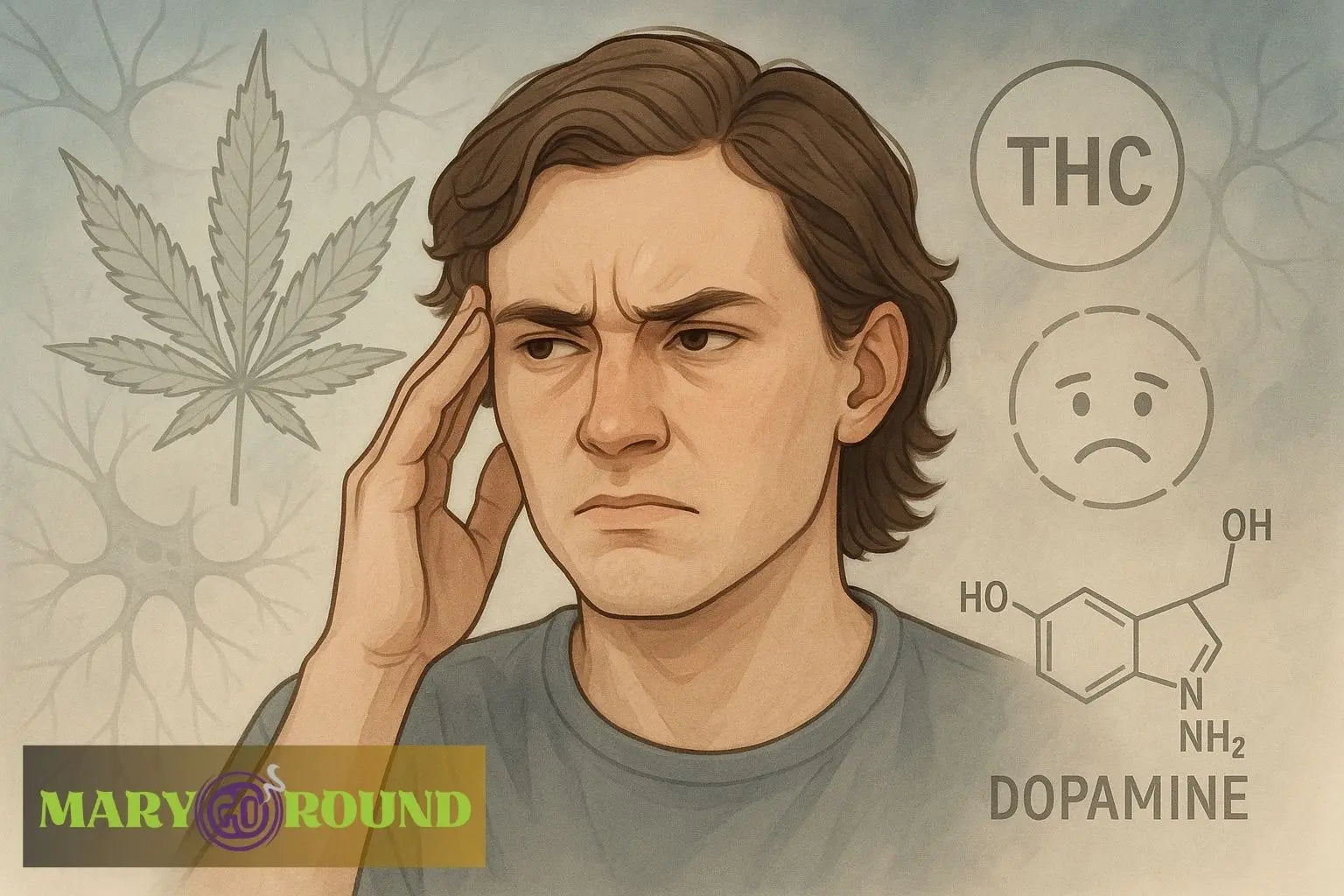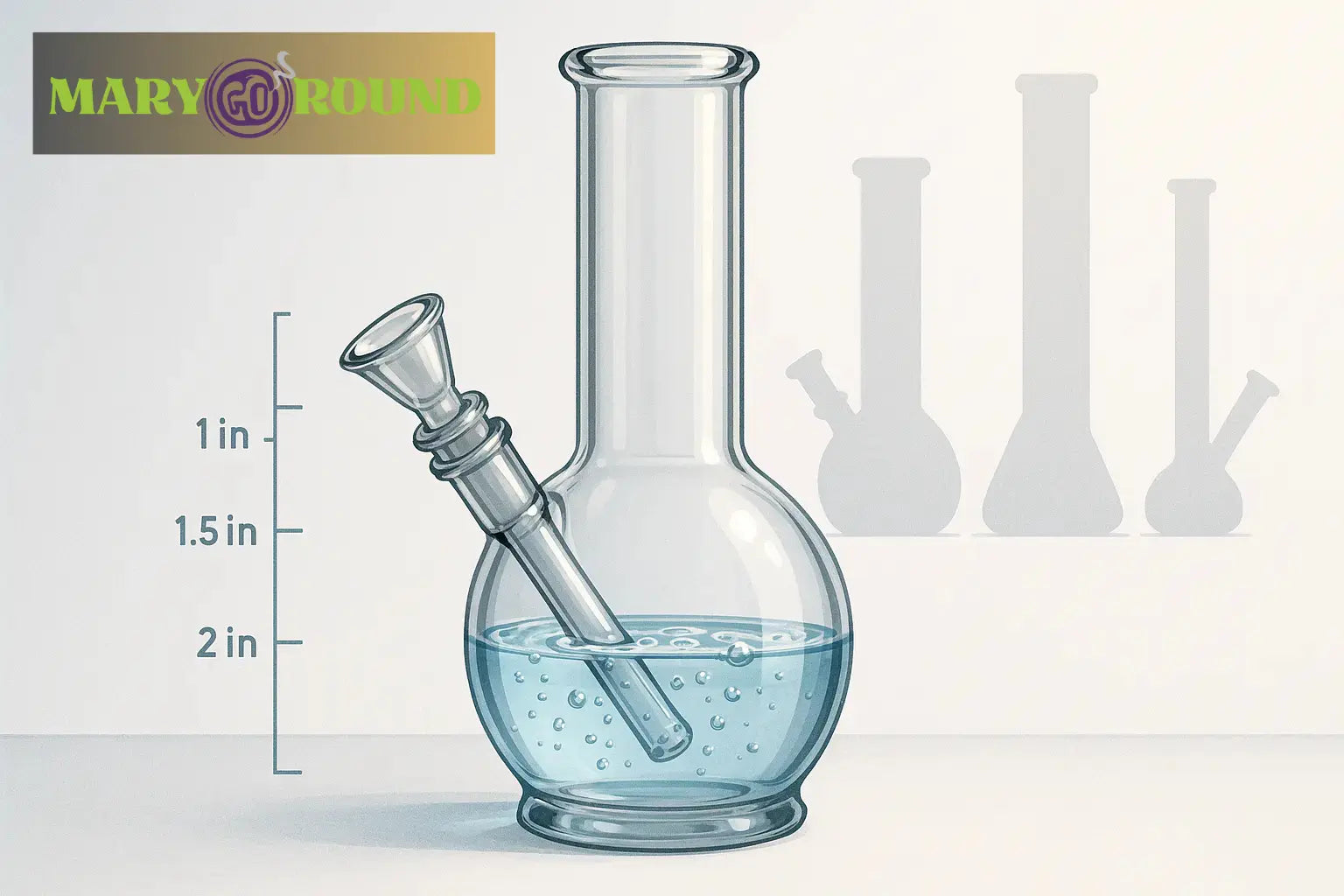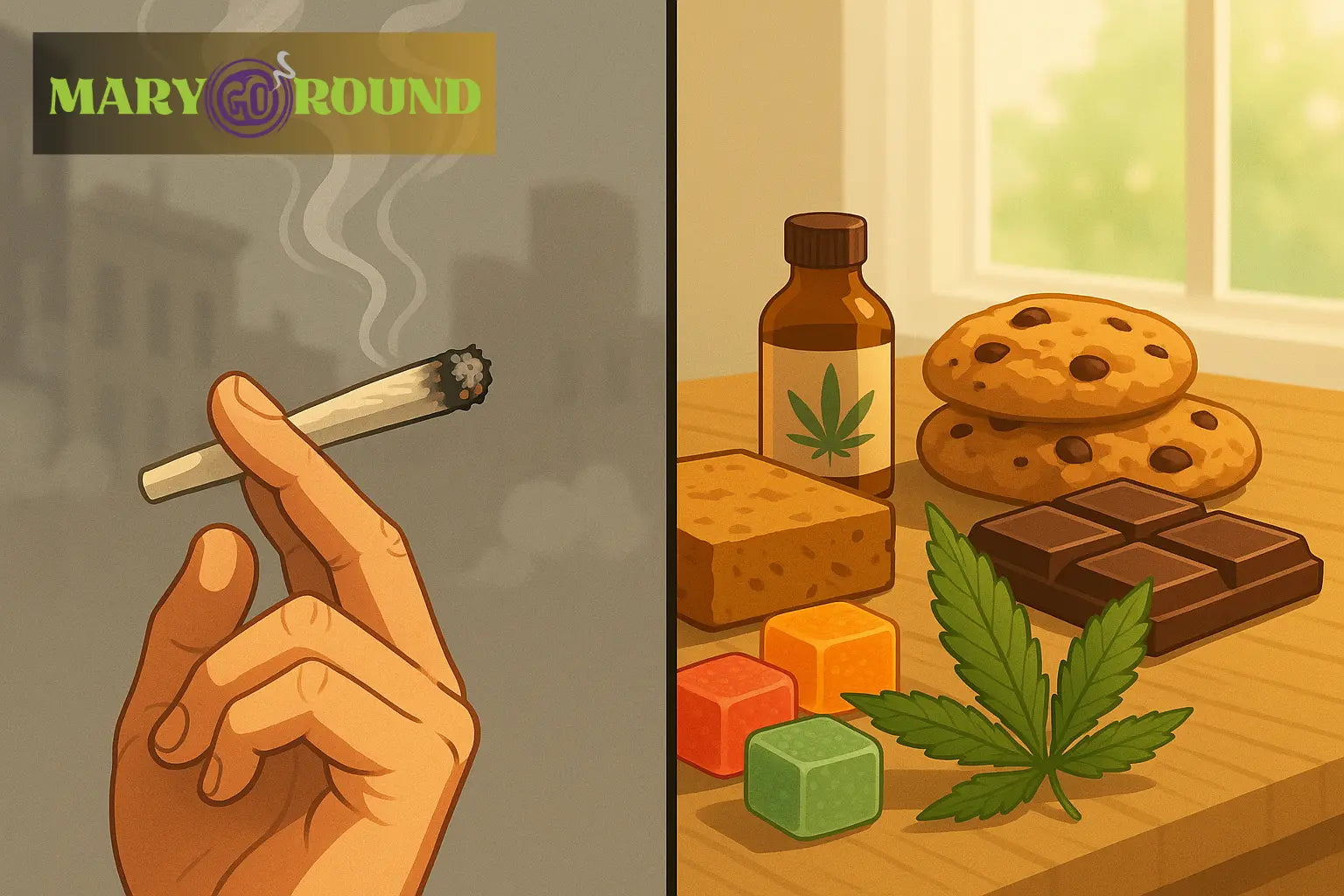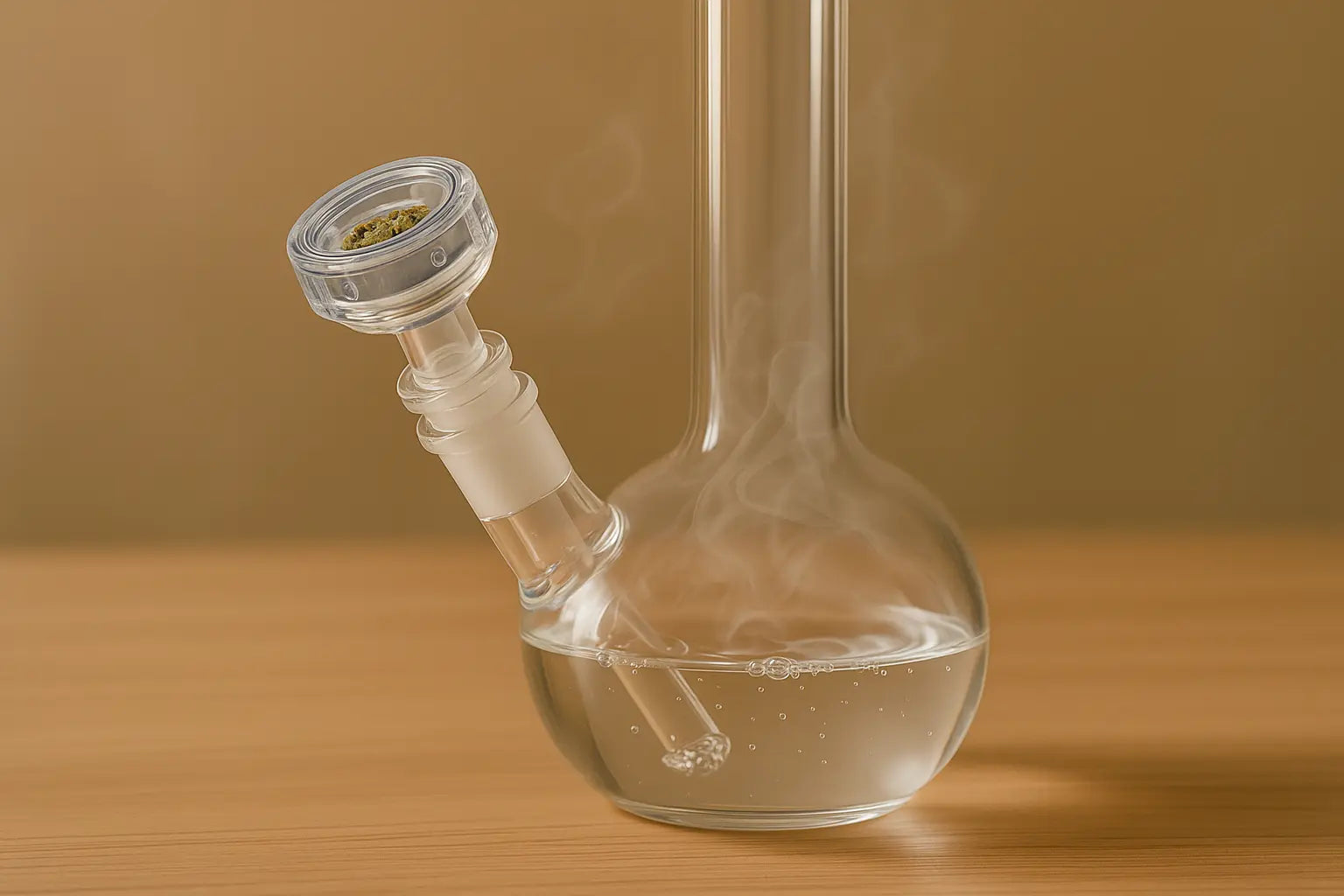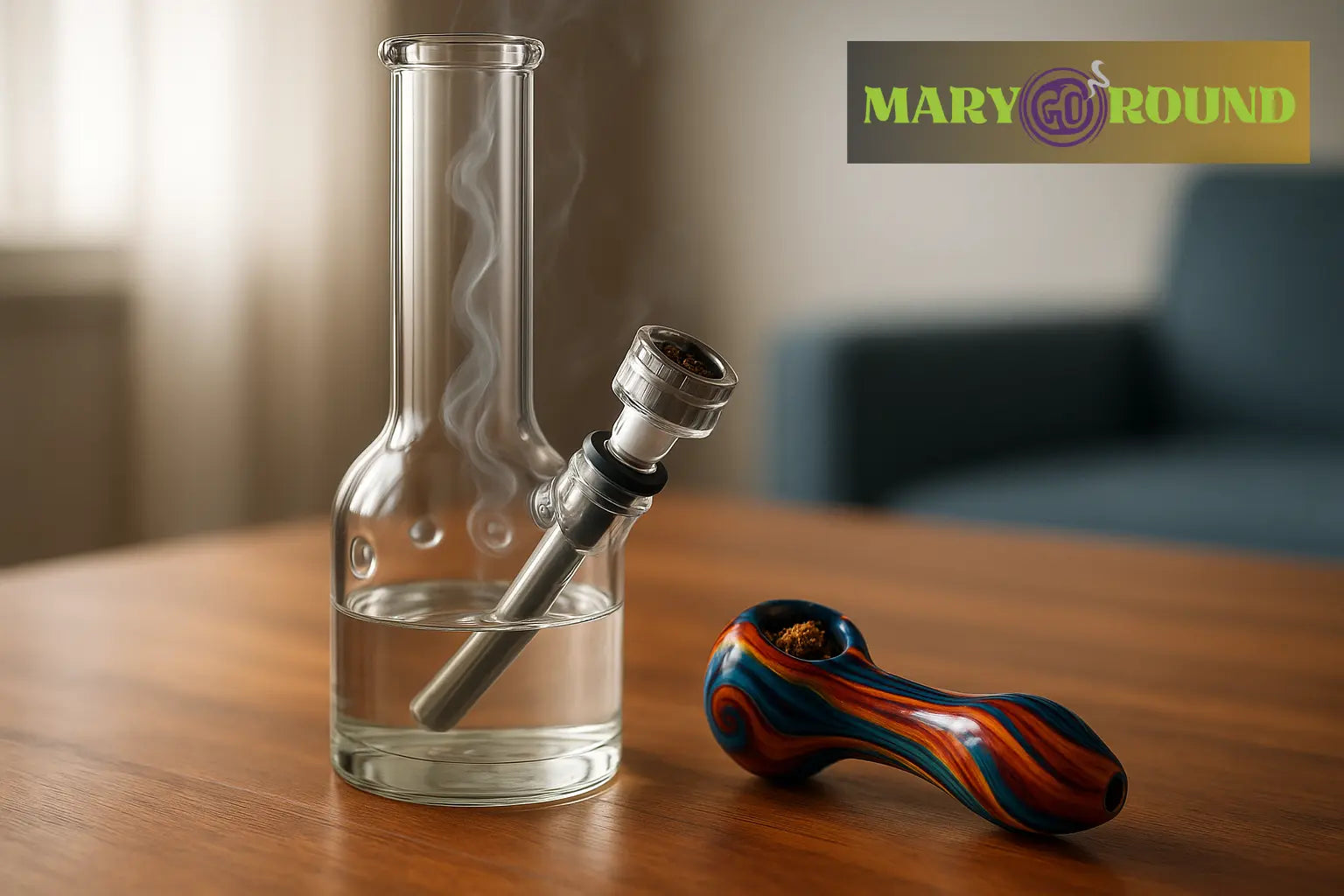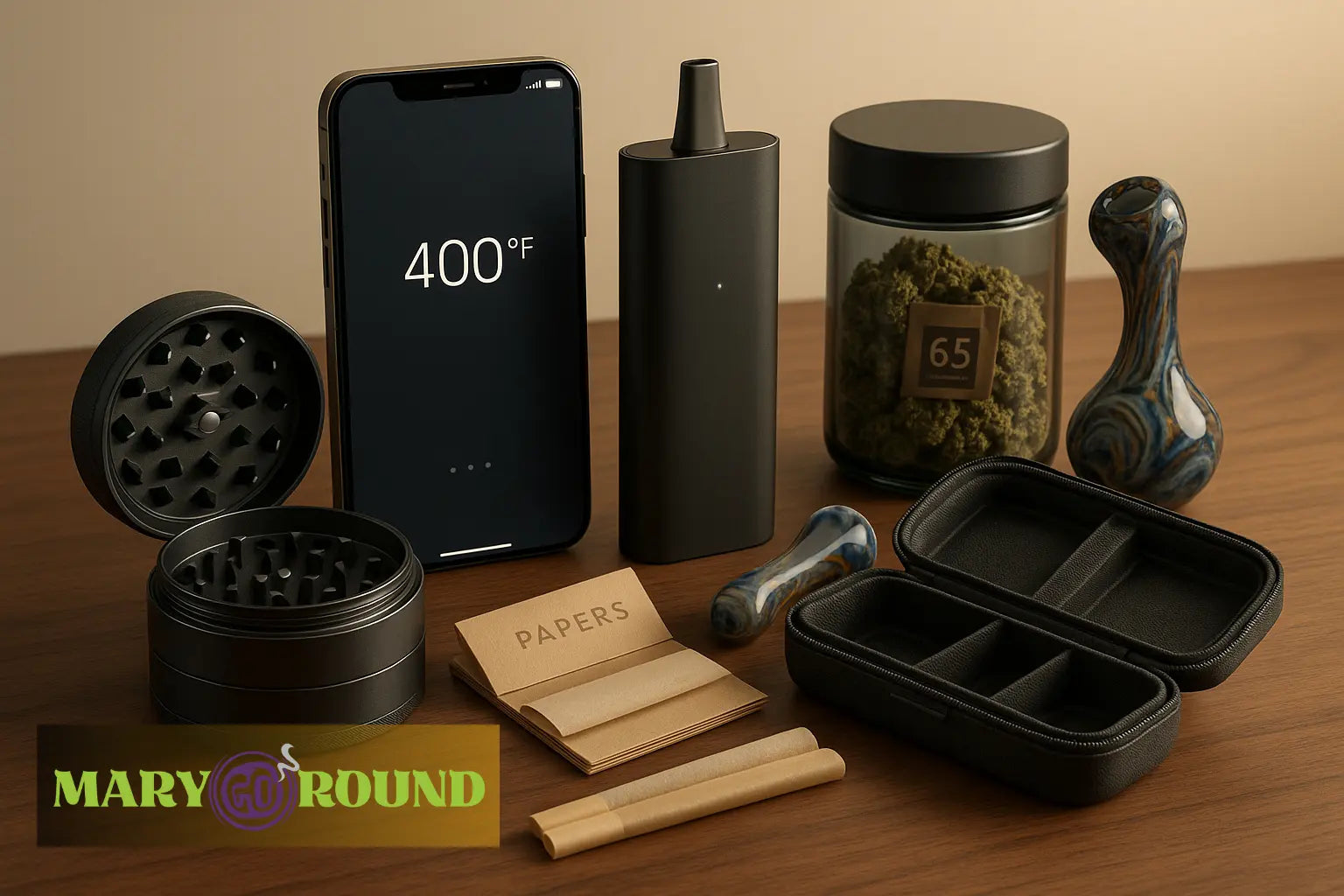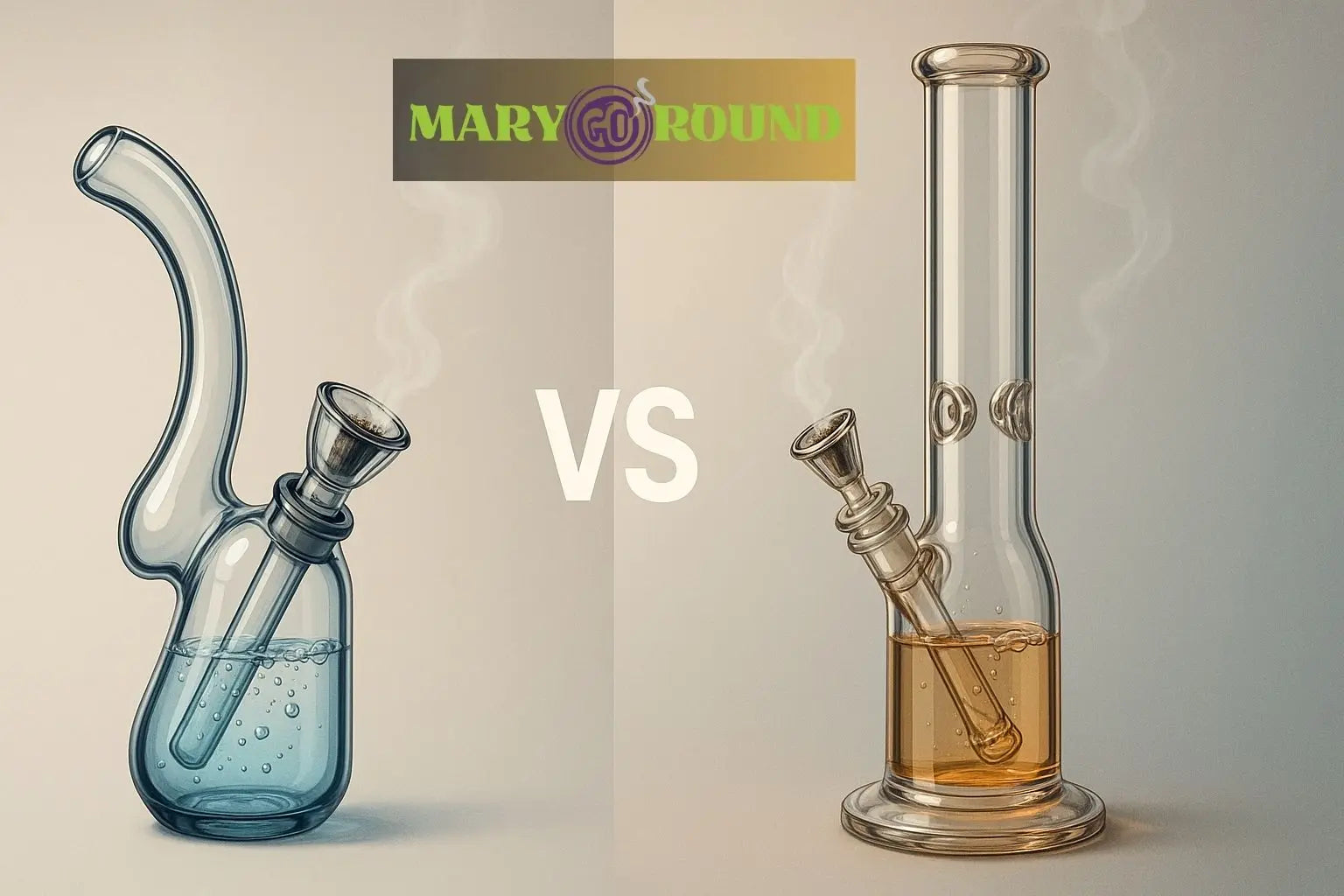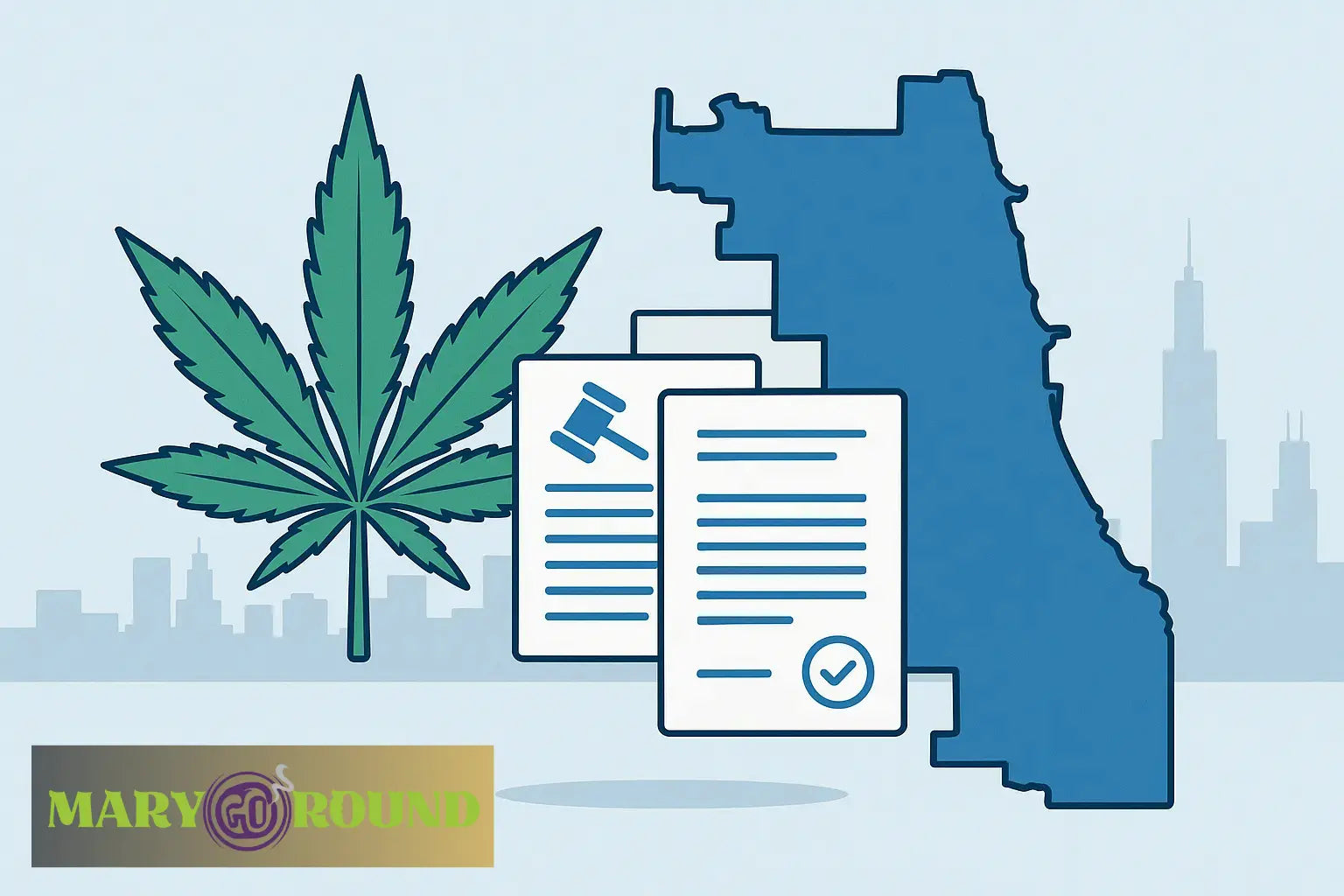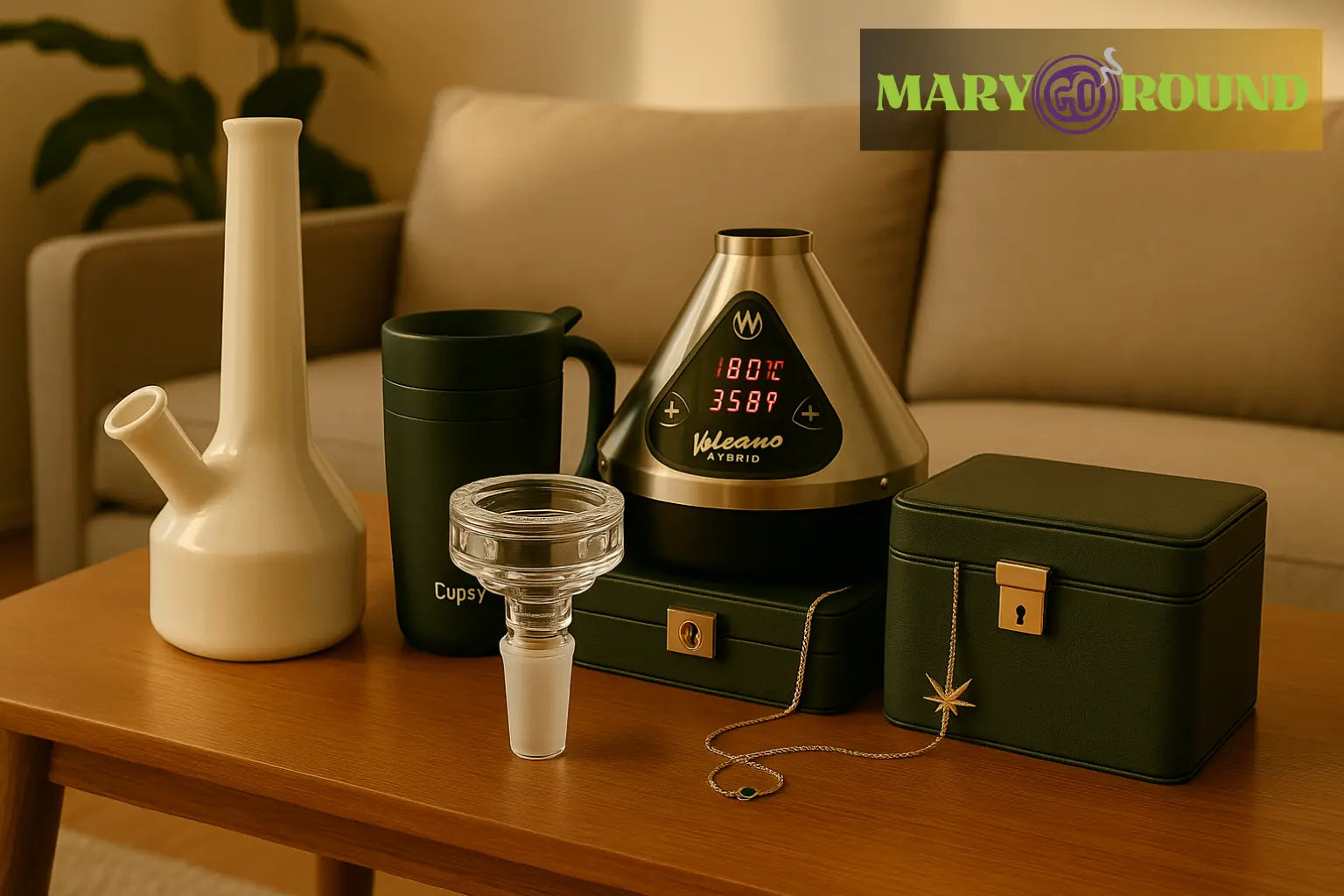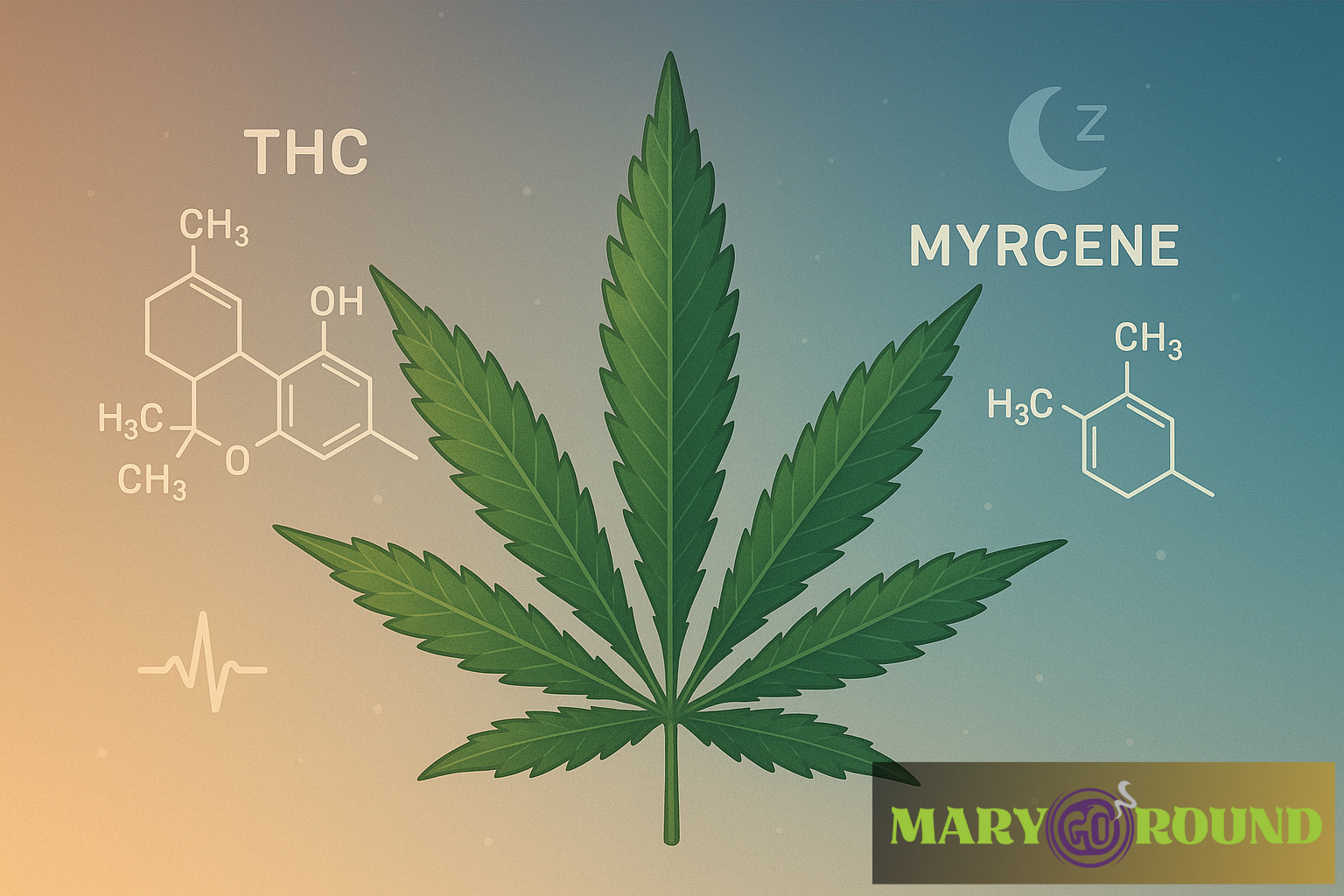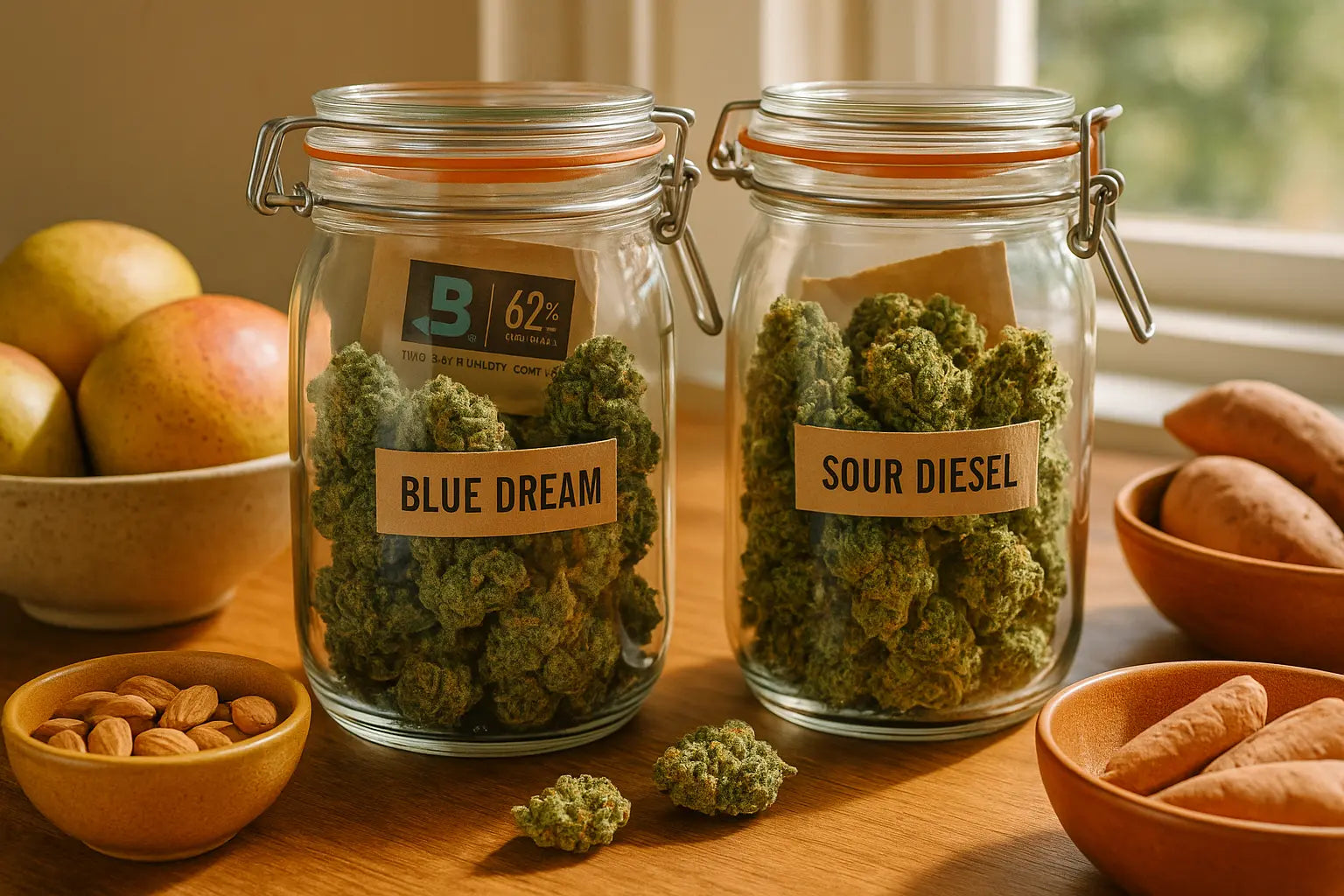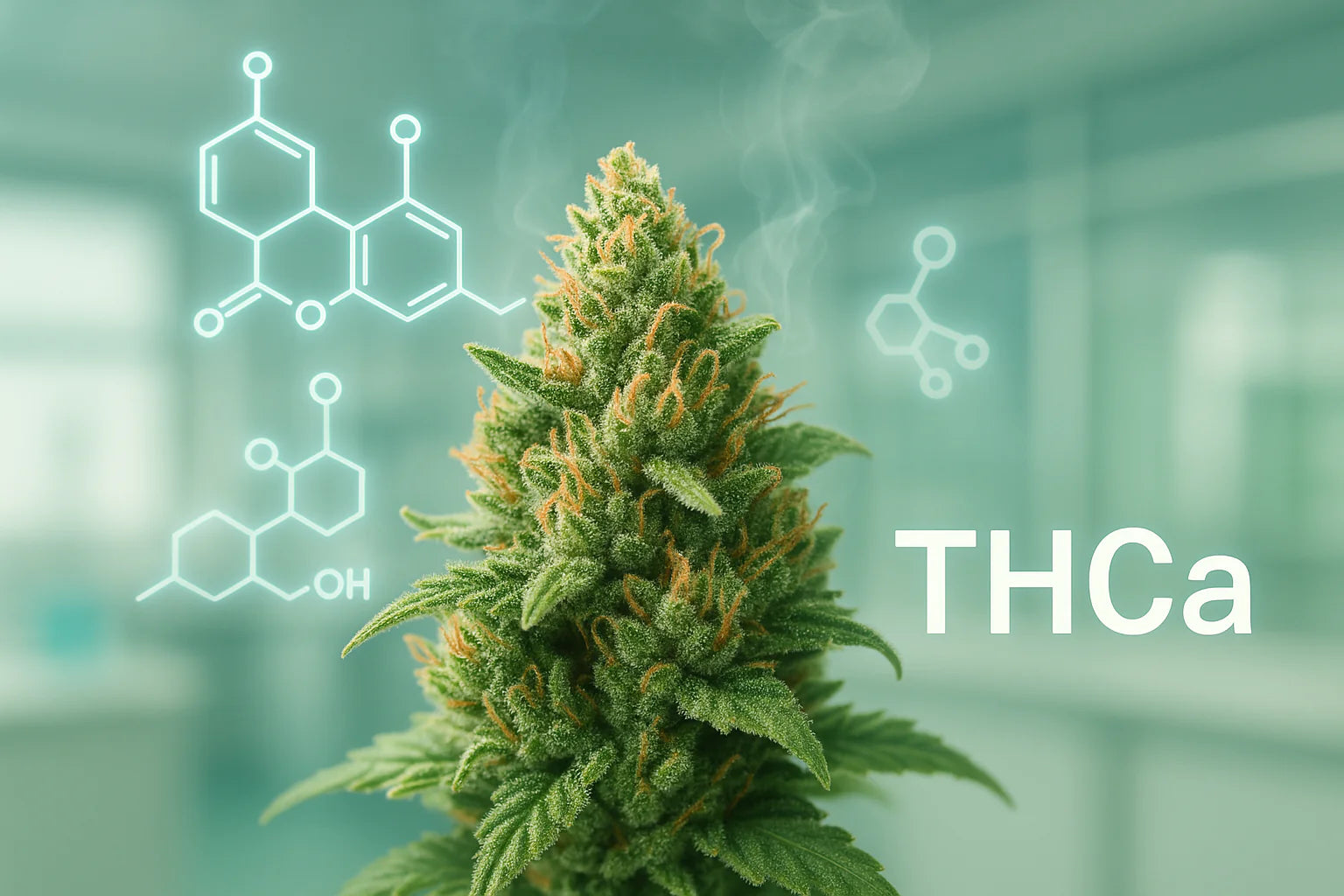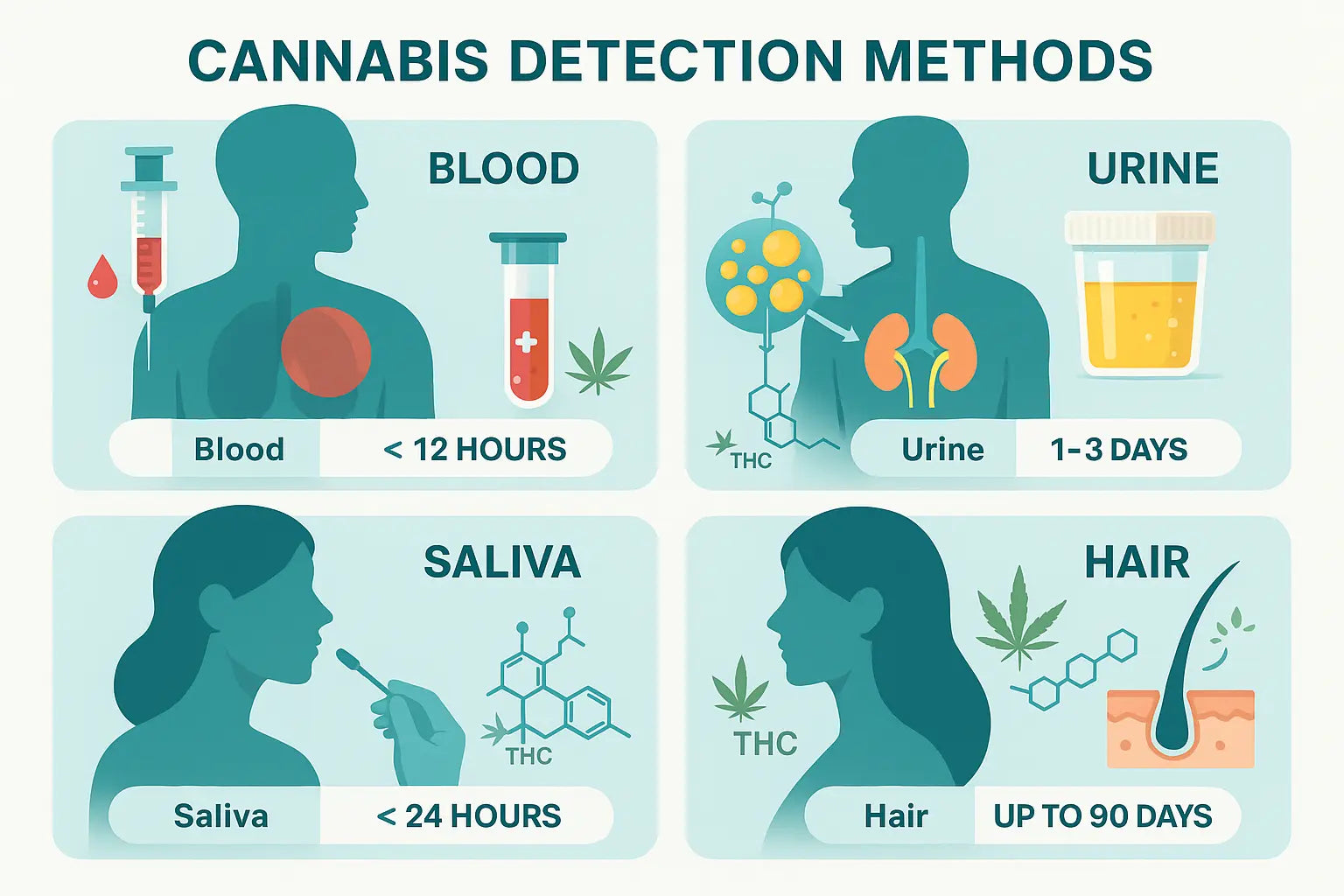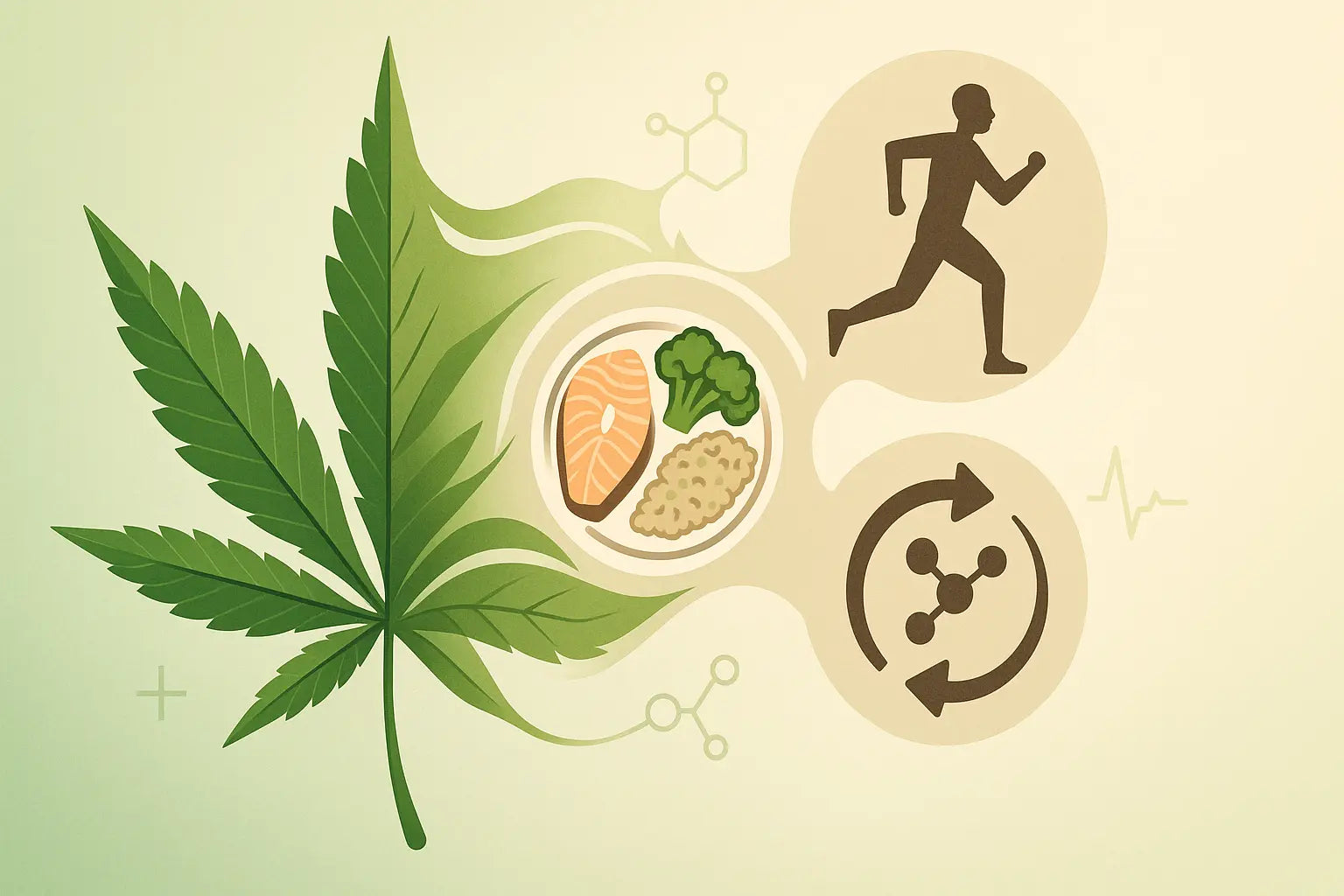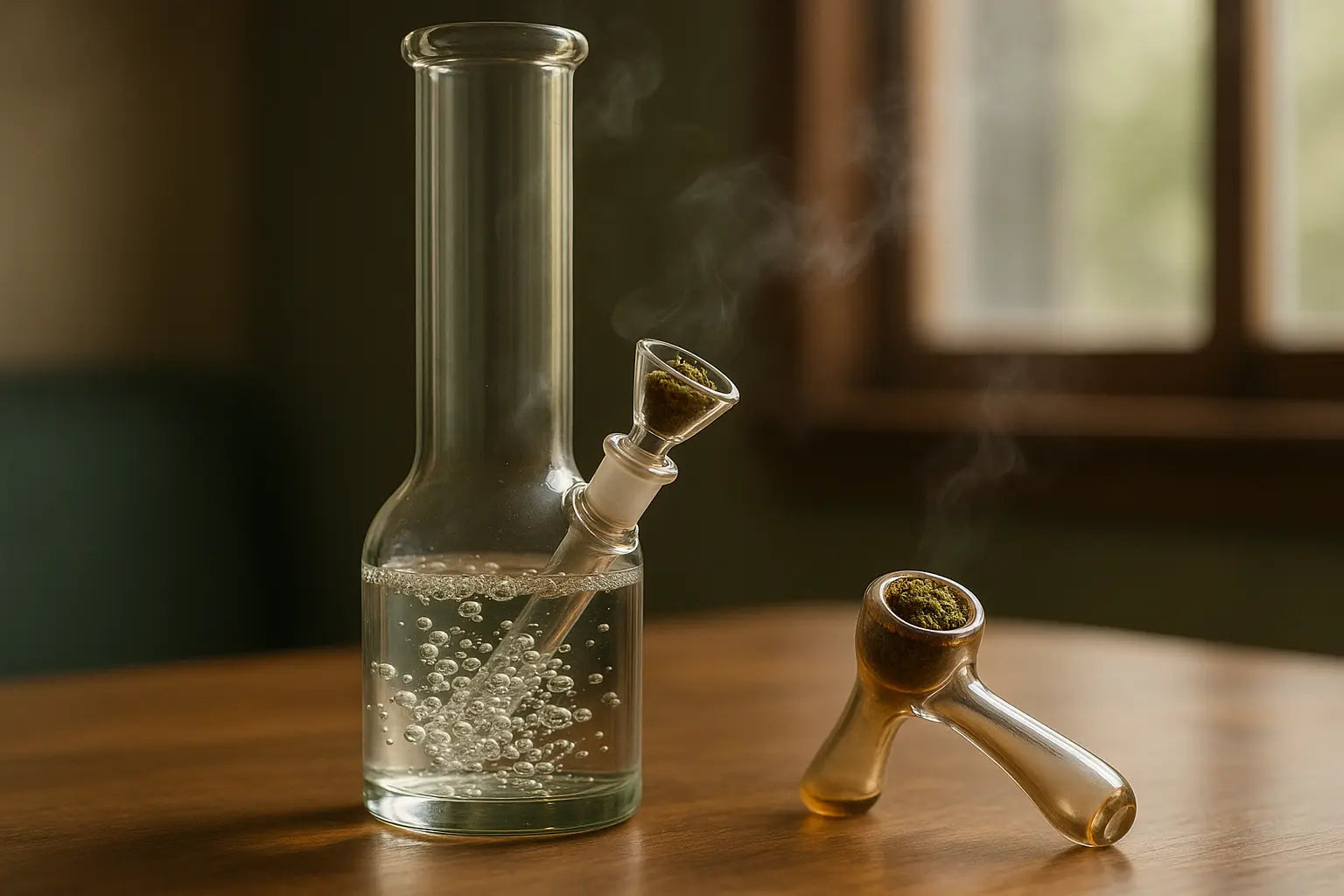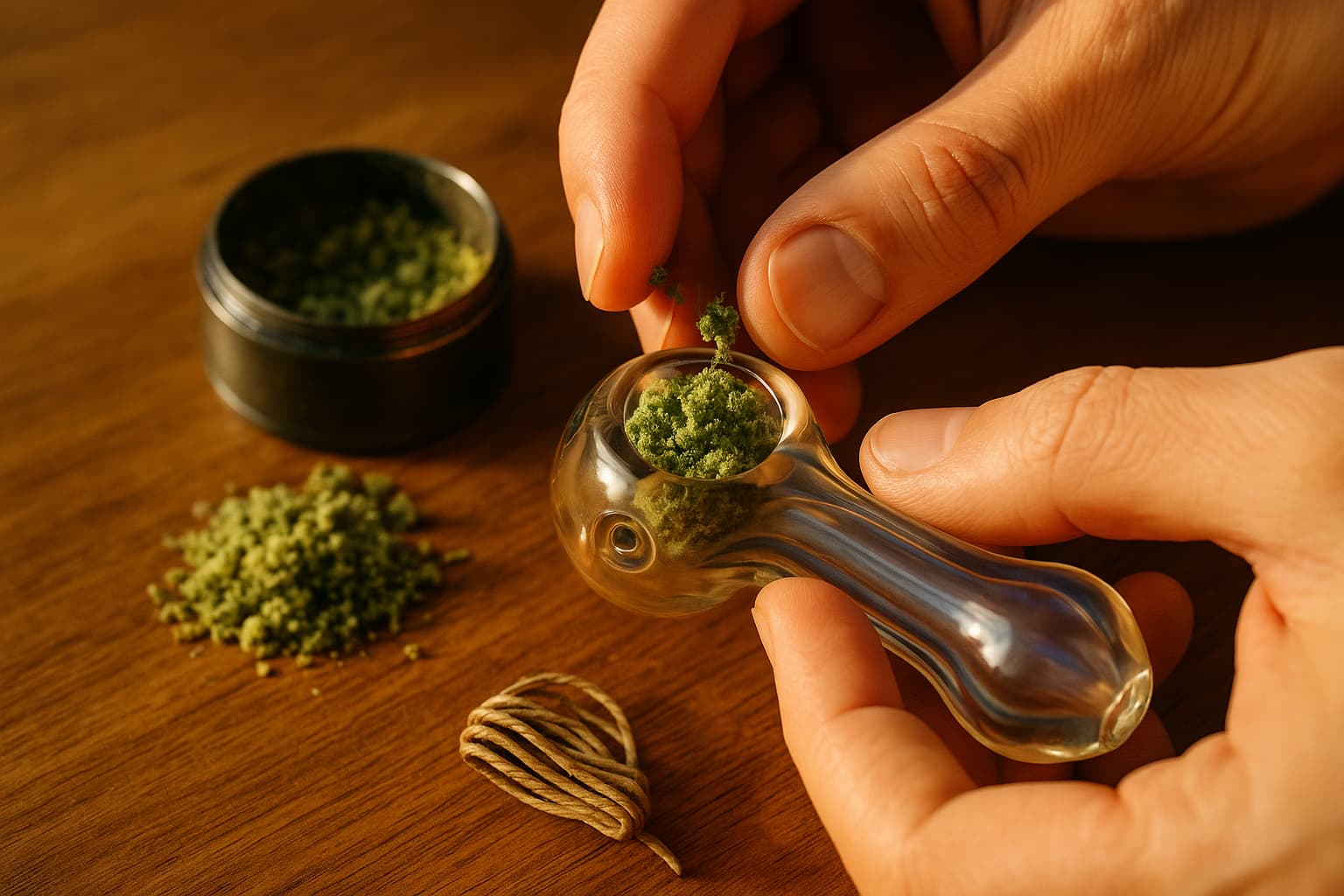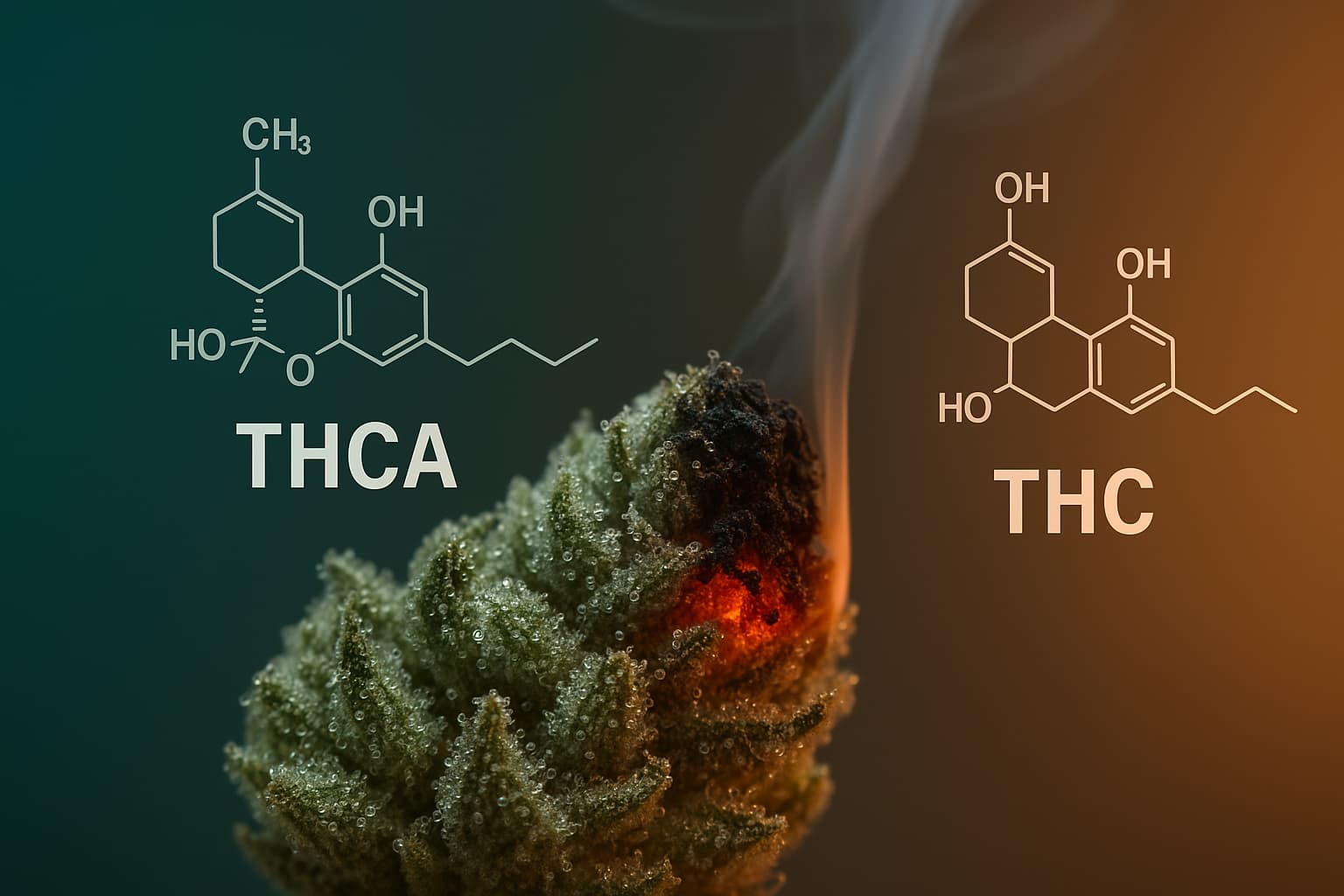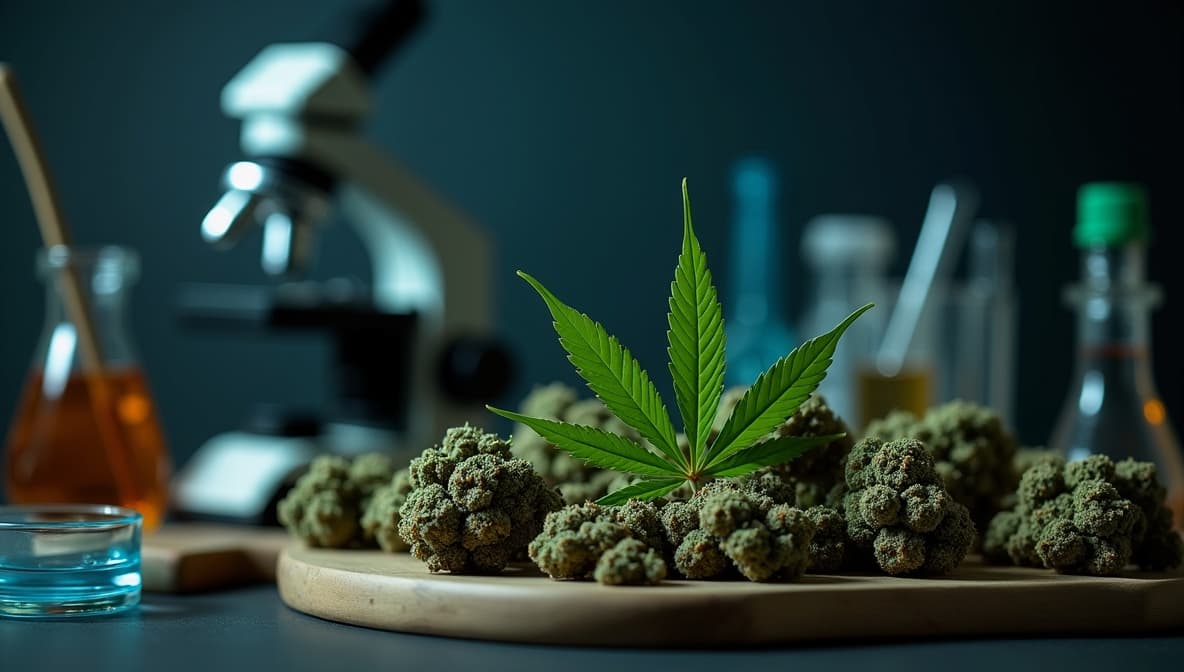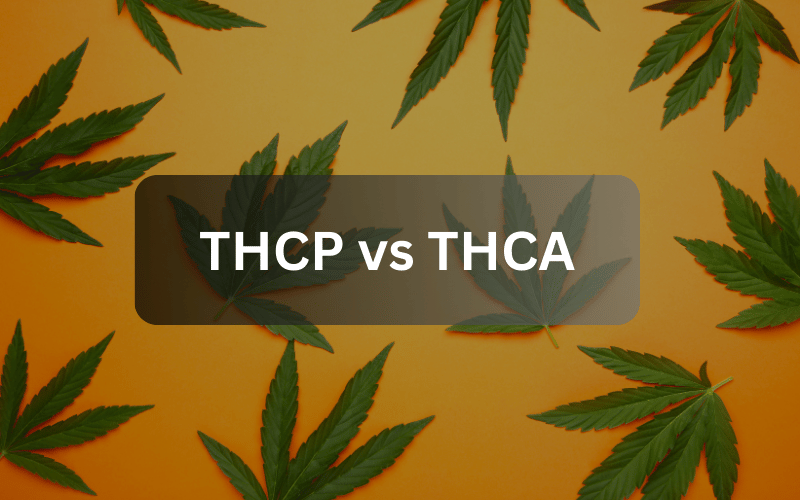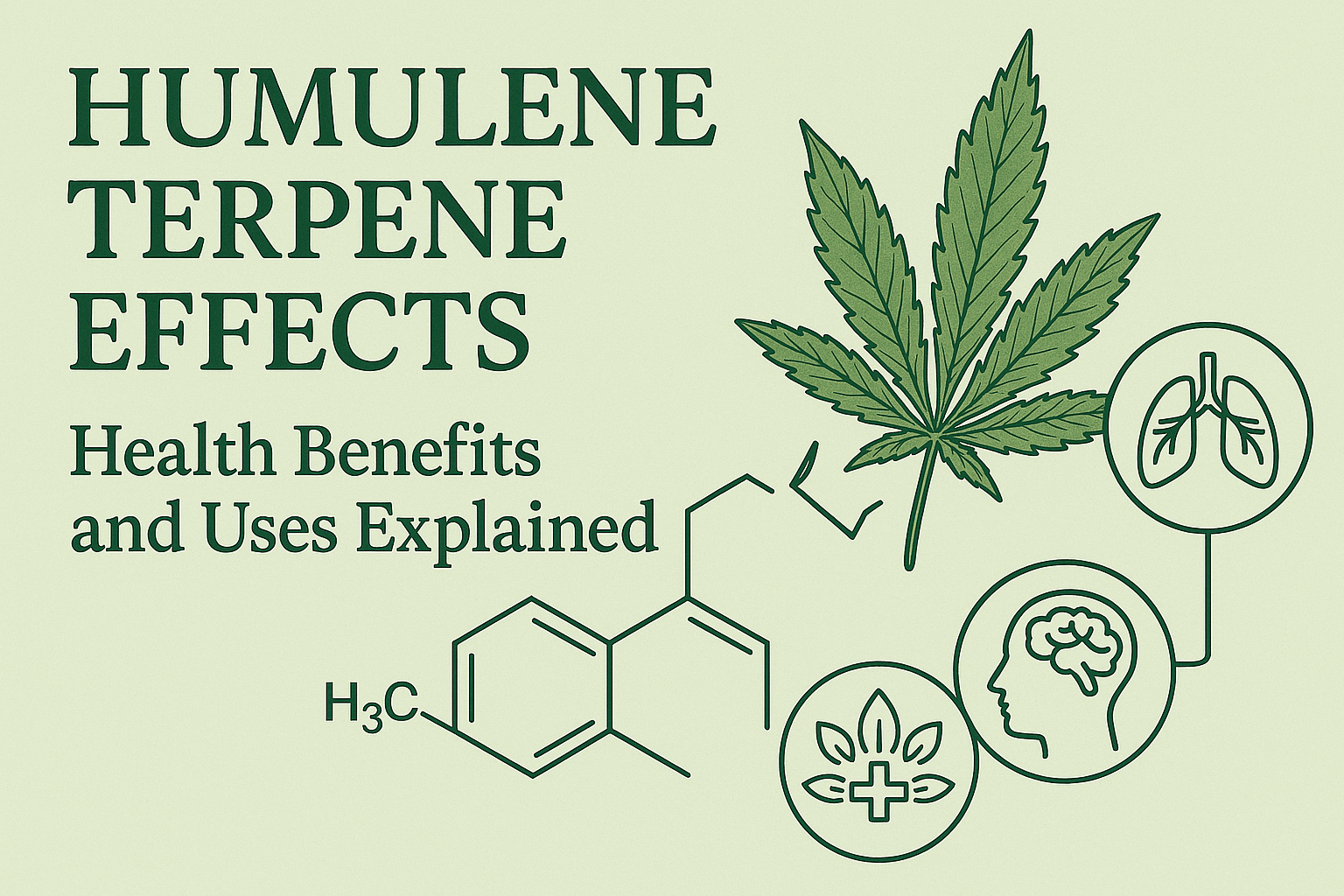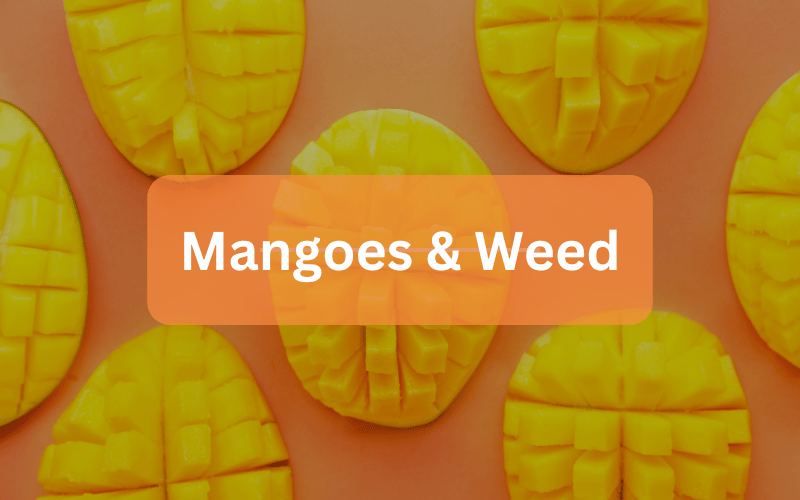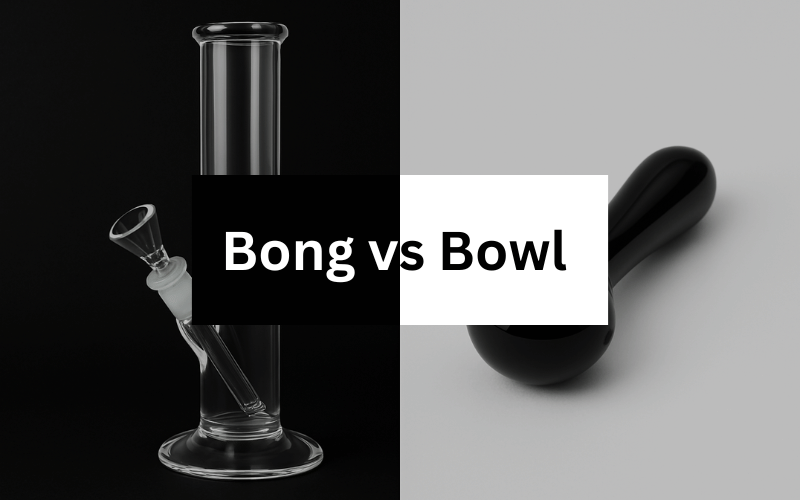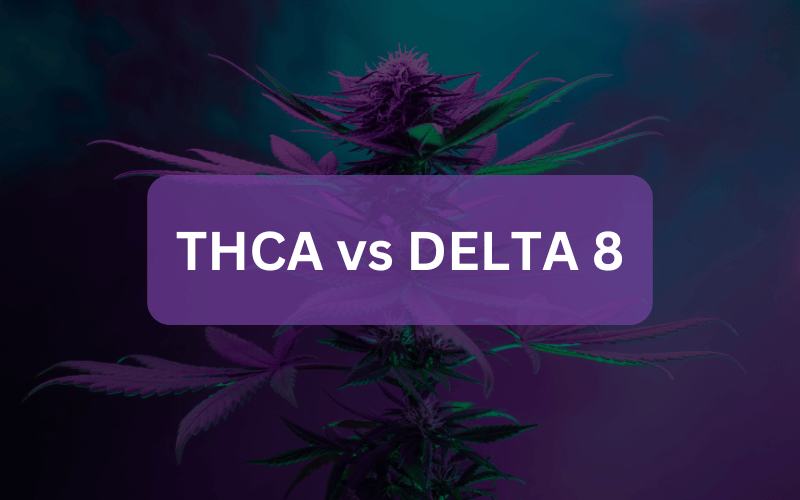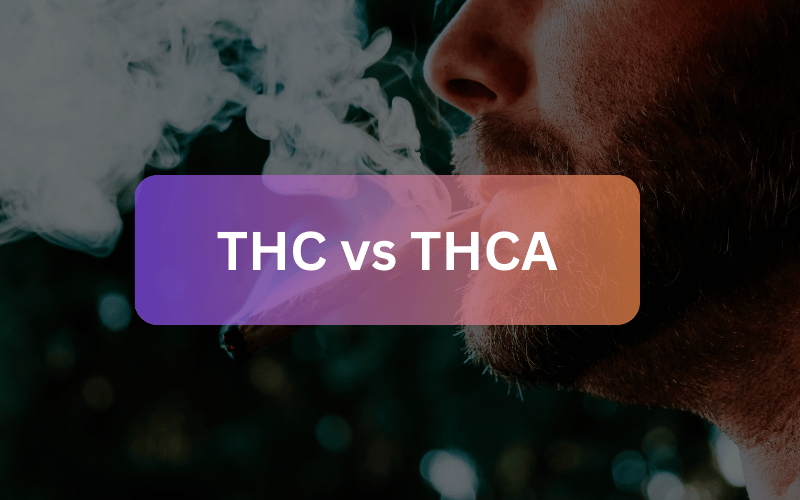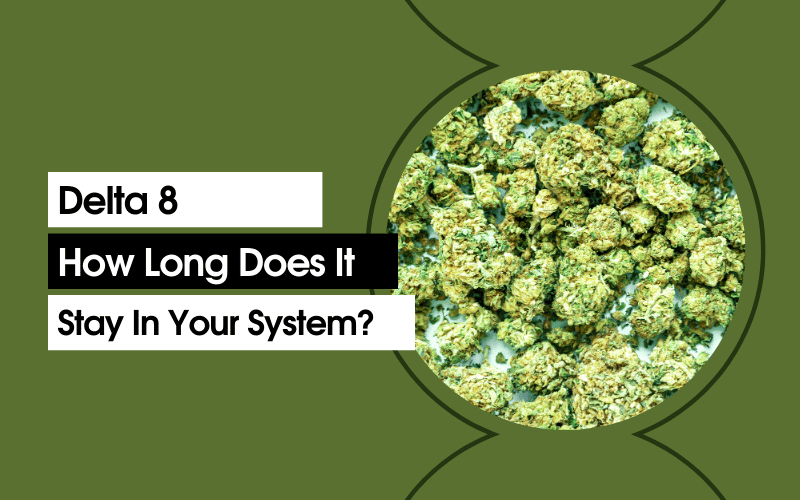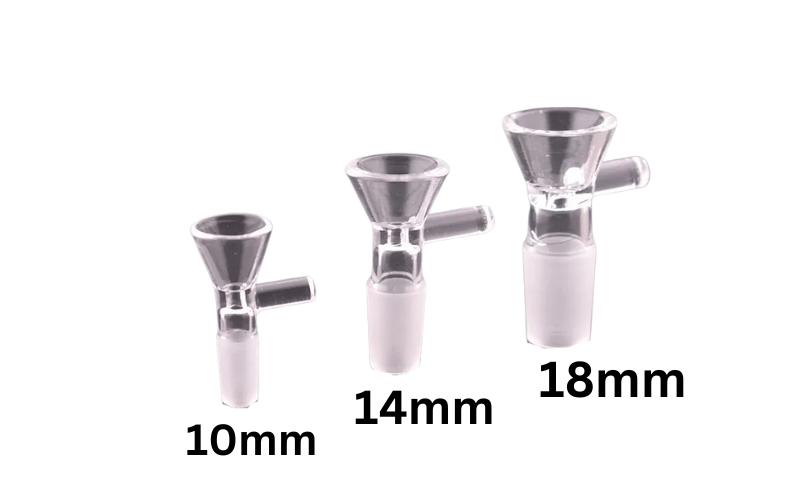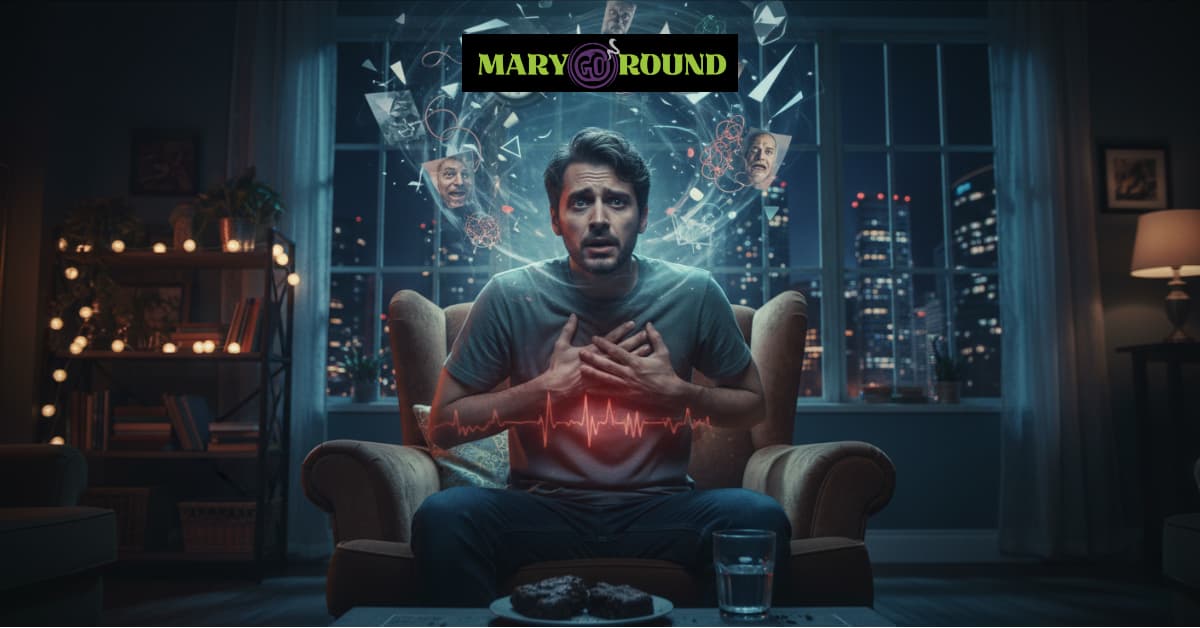
How Long Does Cannabis-Induced Anxiety Last and How to Manage It
Posted by Tom Wittneben on
If you’ve ever taken a hit and suddenly felt your chest tighten, your heart race, or your thoughts spiral, you’re not alone. Cannabis induced anxiety is more common than most people think, and it can be overwhelming in the moment. The good news is that most anxiety symptoms last only a short time, usually from a few minutes up to several hours, depending on several factors like dosage, strain, and method of use.
Here at Mary Go Round, we believe no one should feel isolated when it comes to cannabis use. Sharing real experiences helps us all learn and grow. If you’ve dealt with cannabis induced anxiety and want to add your voice, we’d love for you to share your story in the Mary Go Round community blog or join the conversation in our comment section.
What Is Cannabis-Induced Anxiety?
Cannabis induced anxiety happens when someone experiences fear, panic, or distress after using cannabis. It often shows up as physical and psychological effects like:
-
Racing heartbeat or increase heart rate
-
Feelings of paranoia or fear
-
Shortness of breath or chest tightness
-
Panic attacks with overwhelming dread
-
Shakiness, sweating, or a sudden sense of mental distress
For most users, these common symptoms fade quickly once the effects of THC wear off. But in some cases, people may develop a longer-lasting pattern known as cannabis induced anxiety disorder. This disorder means anxiety continues well beyond the immediate effects of cannabis, sometimes linking with pre existing anxiety disorders or other mental health conditions.
Healthcare providers diagnose cannabis induced anxiety disorder by looking at factors such as cannabis use history, other substances involved, and a person’s overall mental state. Understanding whether it’s a one-time reaction or part of a bigger pattern is the first step in finding the right support.
Why Does Cannabis Trigger Anxiety in Some People?
Cannabis affects everyone differently, and for some, the same puff that brings calm to one person can trigger anxiety symptoms in another. This has a lot to do with how THC interacts with the brain. THC, the main psychoactive ingredient in cannabis, binds to cannabinoid receptors in the brain’s endocannabinoid system. These receptors help regulate mood, fear, and stress, so when THC floods the system, it can shift balance in unexpected ways.
Several factors make anxiety more likely after cannabis use:
-
Dosage: High doses of THC often have stronger anxiety inducing effects.
-
Strains: High THC strains carry a greater risk than balanced THC/CBD blends.
-
Method of use: Smoking and vaping hit fast, while edibles kick in slowly but can last much longer.
-
Personal sensitivity: People with pre existing anxiety disorders or other mental health conditions are more likely to feel triggered.
-
Other substances: Mixing cannabis with alcohol or other drugs can increase anxiety symptoms.
On Reddit, one user shared how they felt fine smoking flower but experienced severe panic attacks after eating an edible brownie. The delayed onset and lingering effects made them believe something was seriously wrong. After a few hours, the fear passed, and they later learned this reaction was fairly common with edibles. Stories like this remind us that anxiety after cannabis use isn’t unusual and often depends on how the cannabis was consumed. Read the full thread here.
Understanding these factors shows why induced anxiety can happen suddenly and why it feels so different from person to person. It also highlights that the problem isn’t always cannabis itself but how and when it’s used.
How Long Does Cannabis-Induced Anxiety Last?
One of the most common questions people ask is, “how long does cannabis-induced anxiety last?” The truth is, most acute episodes are short-lived, usually fading within 30 minutes to a few hours. But the exact timing can vary depending on several factors, especially dose, method of consumption, and individual sensitivity.
-
Smoking or vaping: Anxiety symptoms often appear within 15–30 minutes and typically fade within 2–4 hours.
-
Edibles: Because they take longer to digest, edibles may trigger anxiety that lasts much longer, sometimes 6–8 hours or more.
-
Lingering effects: For sensitive users, feelings of uneasiness, paranoia, or fatigue may hang around for up to 24 hours, even after the main high is gone.
A large study conducted on emergency department visits found that 17.3% of cannabis toxicity cases involved cannabis induced anxiety. Most symptoms such as panic attacks, paranoia, or agitation resolved during emergency care, usually within less than 6 hours.
In controlled trials, THC-only cannabis caused more anxiety than blends that combined THC with CBD. Anxiety peaked in the first 1–2 hours, then faded as the drug metabolized..
So, while induced anxiety last for only several hours in most users, the experience can feel much longer because of the psychological effects of fear and panic. Knowing that the body processes THC on its own time and that anxiety symptoms will eventually pass can make a big difference in calming down when you are in the middle of it.
Risk Factors: Who’s More Vulnerable?
Not everyone who uses cannabis will feel anxious, but certain factors make cannabis induced anxiety more likely. Understanding these can help cannabis consumers make smarter choices and reduce stress during a session.
Key risk factors include:
-
Pre-existing anxiety disorders: People already living with anxiety disorders or other mental health conditions are more likely to experience stronger anxiety symptoms after cannabis use. Cannabis can amplify fear responses, turning normal effects into overwhelming panic attacks.
-
High THC strains: Research shows high THC strains are linked to more anxiety inducing effects compared to blends that include CBD. For some, too much cannabis with THC alone is enough to spark panic within minutes.
-
High doses or frequent use: Taking high doses, especially through edibles, raises the chance of severe anxiety. Frequent or heavy cannabis use can prolong cannabis induced anxiety or even connect with cannabis use disorder.
-
Mixing with alcohol or other drugs: Using cannabis alongside alcohol or other substances often intensifies symptoms. Many emergency department visits for cannabis toxicity involve polydrug use.
-
Genetic sensitivity: Some people are simply more sensitive to THC because of genetic factors, making them more vulnerable to induced anxiety symptoms.
-
Lifestyle factors: Lack of sleep, poor nutrition, or high stress can make cannabis affects on the brain hit harder, leading to panic attacks or lingering effects.
There is growing evidence that long-term or heavy marijuana use may be linked with residual anxiety in vulnerable individuals. Even though most users recover within several hours, people with genetic predispositions or pre existing anxiety disorders face a higher risk of prolonged symptoms.
Managing Cannabis-Induced Anxiety in the Moment
When cannabis induced anxiety strikes, it can feel overwhelming. The fear, the racing heart, the paranoia, it all seems severe in the moment. But remember: these anxiety symptoms are temporary, and there are simple ways to ride them out until they fade.
Here are some techniques that can help reduce anxiety and regain calm:
-
Deep Breathing: Anxiety often makes you breathe fast and shallow, which only fuels panic. Try this instead: inhale slowly through your nose for 4 seconds, hold for 4, then exhale through your mouth for 6. Repeat a few times to lower your heart rate and reduce stress in your body.
-
Hydration: Drink water and stay hydrated. Proper hydration supports brain function and eases physical symptoms like dizziness or dry mouth. Even something simple, like sipping cool water slowly, can calm the nervous system.
-
Mindfulness and Grounding: Focus on the present moment. One grounding trick is the “5-4-3-2-1” method: name five things you see, four you can touch, three you hear, two you smell, and one you taste. This shifts attention away from panic attacks and helps reduce fear.
-
Safe Environment: Remind yourself: this will pass. Find a calm, comfortable spot where you feel safe. Avoid overstimulating spaces like crowded parties or loud music if you’re already anxious.
-
Reach Out: Talking to a trusted friend, joining online support groups, or calling a hotline if needed can make you feel less alone. Many cannabis enthusiasts share their own induced anxiety experiences online, showing that most users go through this at least once.
These steps are not a cure, but they can ease the mental distress and shorten the intensity of induced anxiety last episodes. The goal is to comfort your body and brain until the cannabis effects fade.
Long-Term Coping and Prevention
One anxious experience doesn’t have to define your relationship with cannabis. With a little awareness, most people find ways to keep their sessions mellow and enjoyable.
A few things can help:
-
Keep it simple: Smaller amounts are often enough. Too much cannabis at once can invite worry.
-
Pick the right strain: High THC strains sometimes bring more intensity. Balanced or CBD-rich options can create a calmer vibe.
-
Take care of yourself: Good sleep, food, and hydration make a big difference in how cannabis feels.
-
Check in with yourself: Notice your mental state before you light up. If you’re already stressed, it might be better to wait.
-
Reach out if needed: Talking with a professional or support group is never a weakness, sometimes it’s the best way forward.
At Mary Go Round, we believe the best sessions happen when your mind feels at ease. With small adjustments and a little self-kindness, cannabis can stay something you enjoy rather than something you fear.
When to Seek Professional Help
Most cannabis induced anxiety passes on its own, but sometimes it lingers or keeps coming back. If you notice anxiety symptoms lasting well beyond the high, or if panic attacks start interfering with your daily life, it might be time to check in with a professional.
A few signs that support could help:
-
Anxiety feels constant, even when you are not using cannabis.
-
Withdrawal symptoms like restlessness or decreased appetite keep showing up.
-
Cannabis use disorder becomes a concern — when cutting back feels hard, even with negative effects.
-
Your relationships, work, or mental health conditions are being affected.
Reaching out does not mean giving up cannabis completely. It means getting tools to manage induced anxiety and understanding how cannabis fits into your life in a healthy way. Healthcare providers and support groups are there to listen and guide, not to judge. Sometimes compassionate care is exactly what makes recovery smoother.
Final Words
Cannabis induced anxiety can feel scary in the moment, but for most people, it is temporary and manageable. Learning about risk factors — like high THC strains, pre existing anxiety disorders, or using too much cannabis — makes it easier to prevent the rough experiences and enjoy the good ones.
Simple steps such as deep breathing, staying hydrated, and making mindful lifestyle changes can help reduce anxiety and keep sessions positive. And if anxiety keeps showing up, professional help is always an option, not as a last resort, but as a source of guidance and compassionate care.
At Mary Go Round, we believe cannabis should bring comfort, not fear. With the right support and awareness, you can move past anxious moments and enjoy a smoother, more balanced experience.
Frequently Asked Questions
Have questions? We at Mary Go Round are happy to help!
How long does cannabis-induced anxiety last?
Cannabis induced anxiety usually lasts from 30 minutes to a few hours. Edibles can stretch symptoms up to 6–8 hours, while lingering effects like paranoia may last into the next day for sensitive users.
Can CBD help with cannabis anxiety?
Yes, CBD may help reduce anxiety symptoms caused by THC. Many users find CBD-rich strains or products more calming than high-THC options.
Is it possible to prevent cannabis anxiety?
Yes, prevention is possible. Start low, go slow, choose balanced strains, and check in with your mental state before using cannabis.
